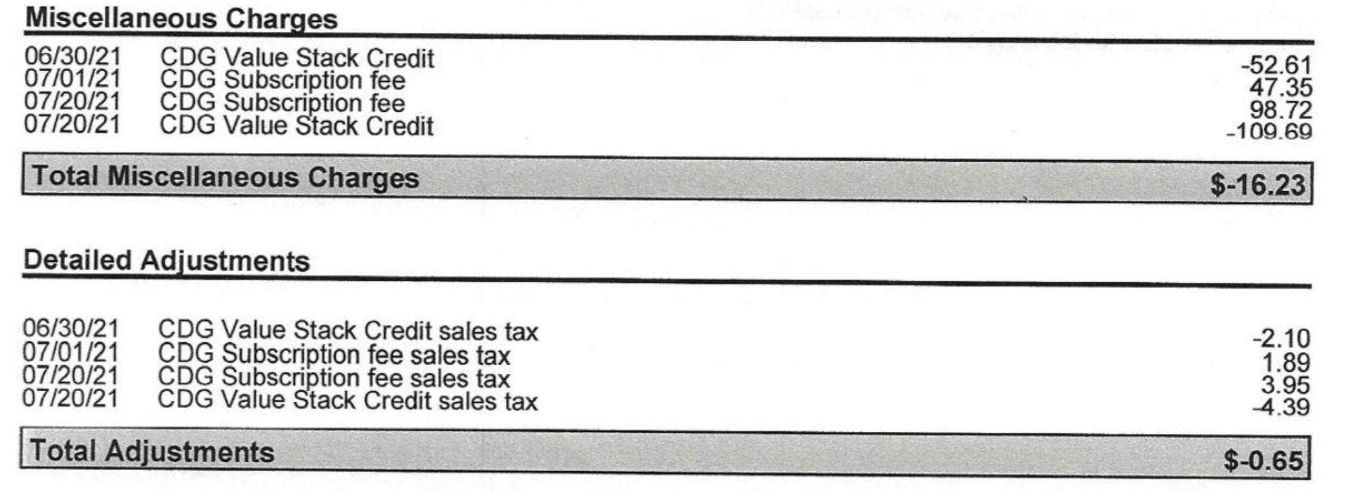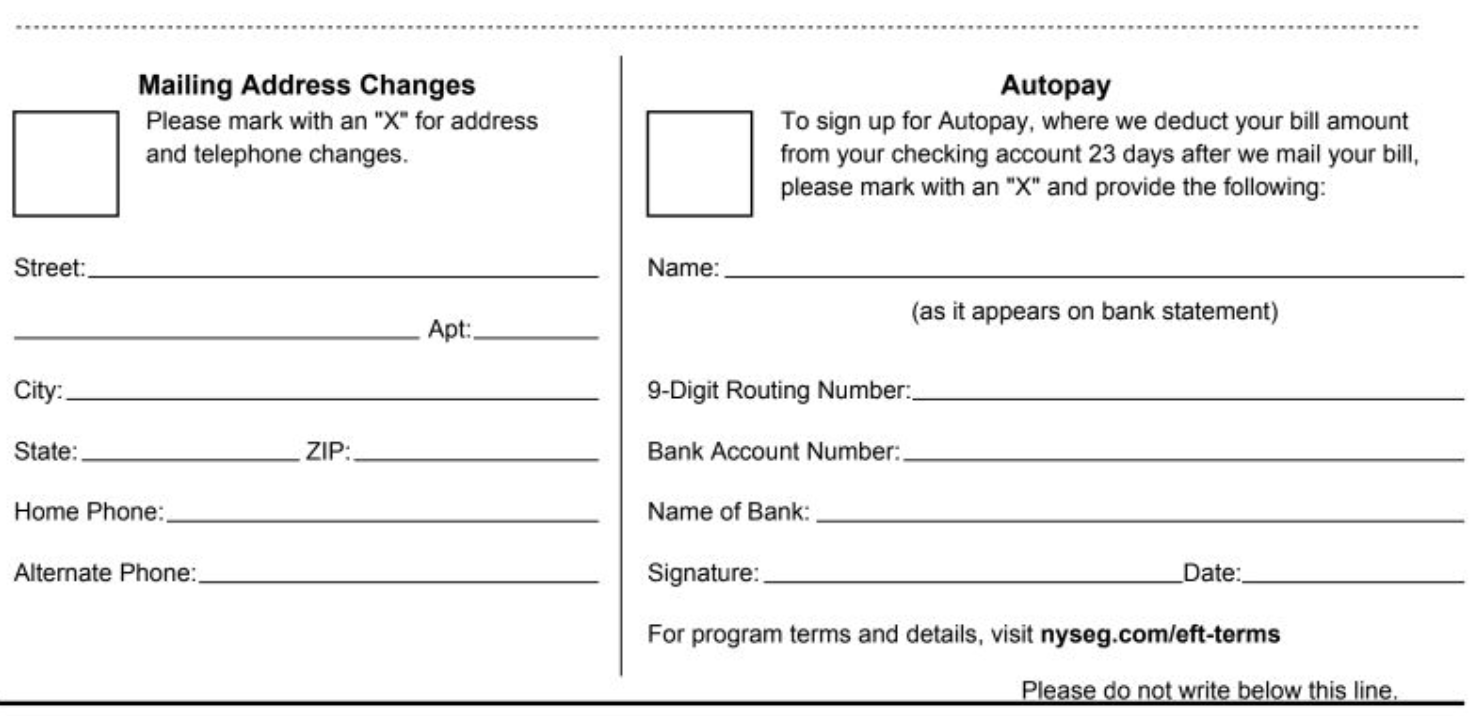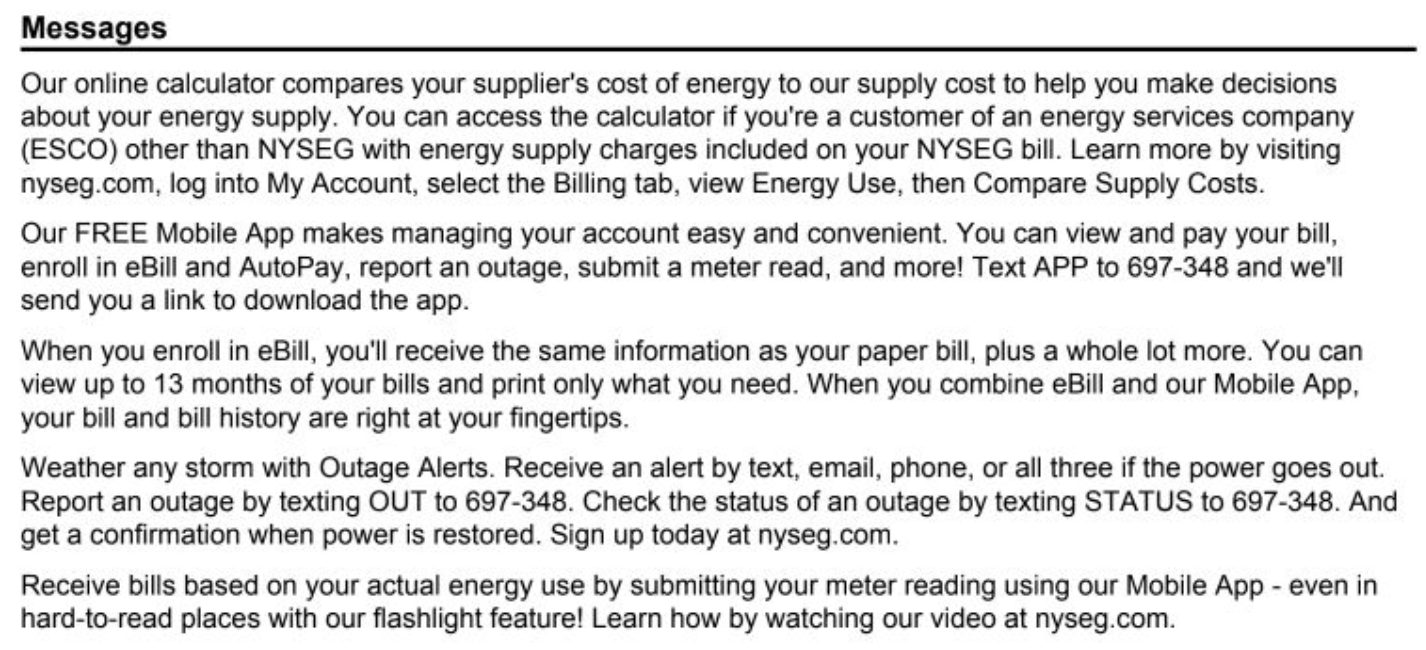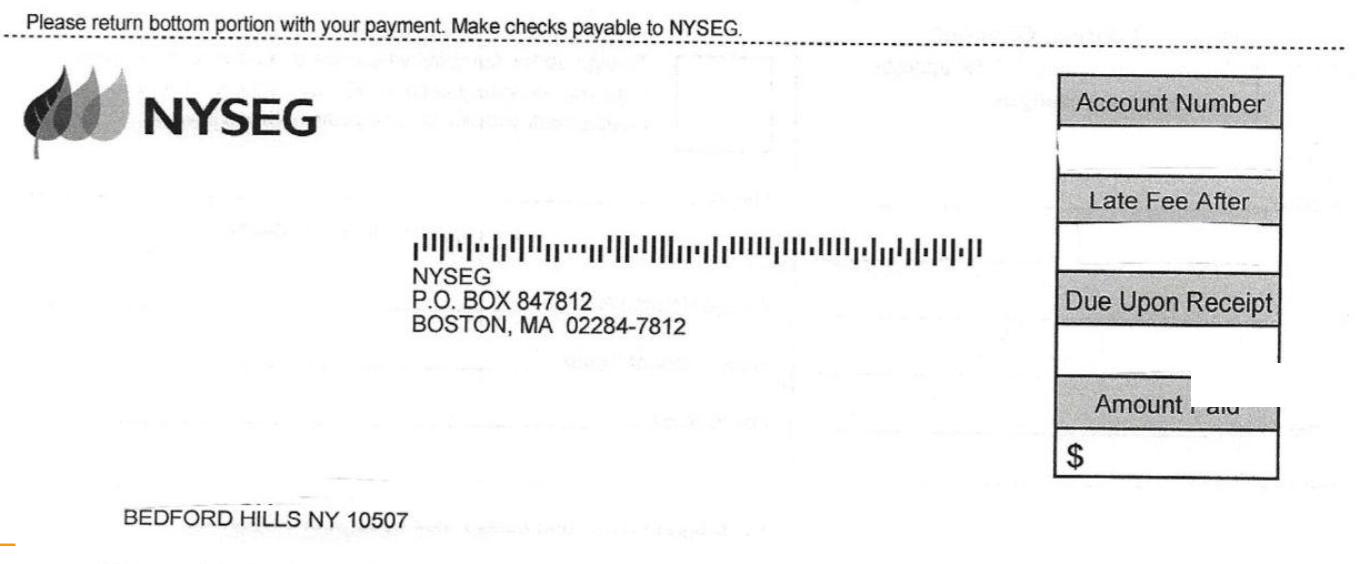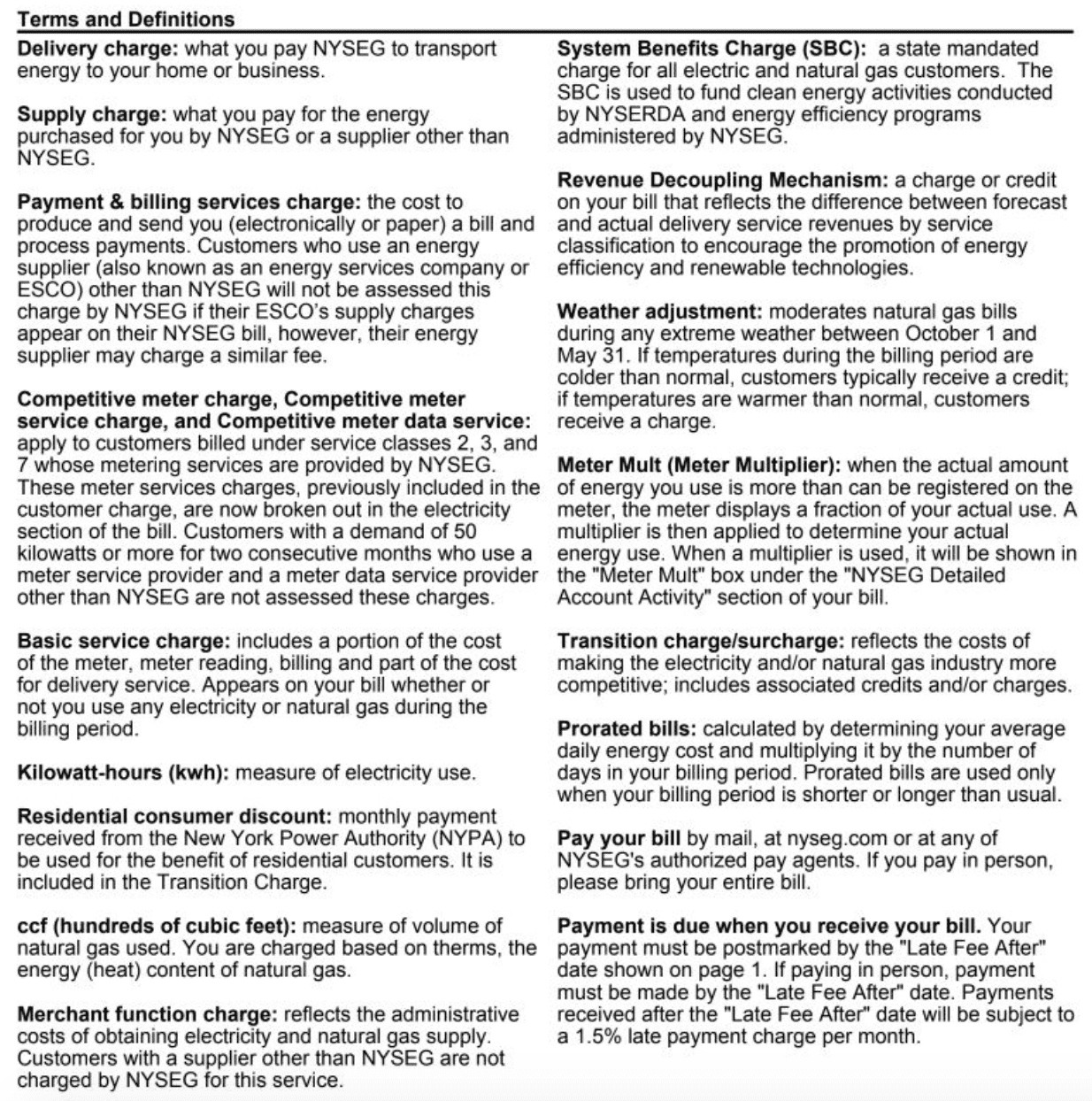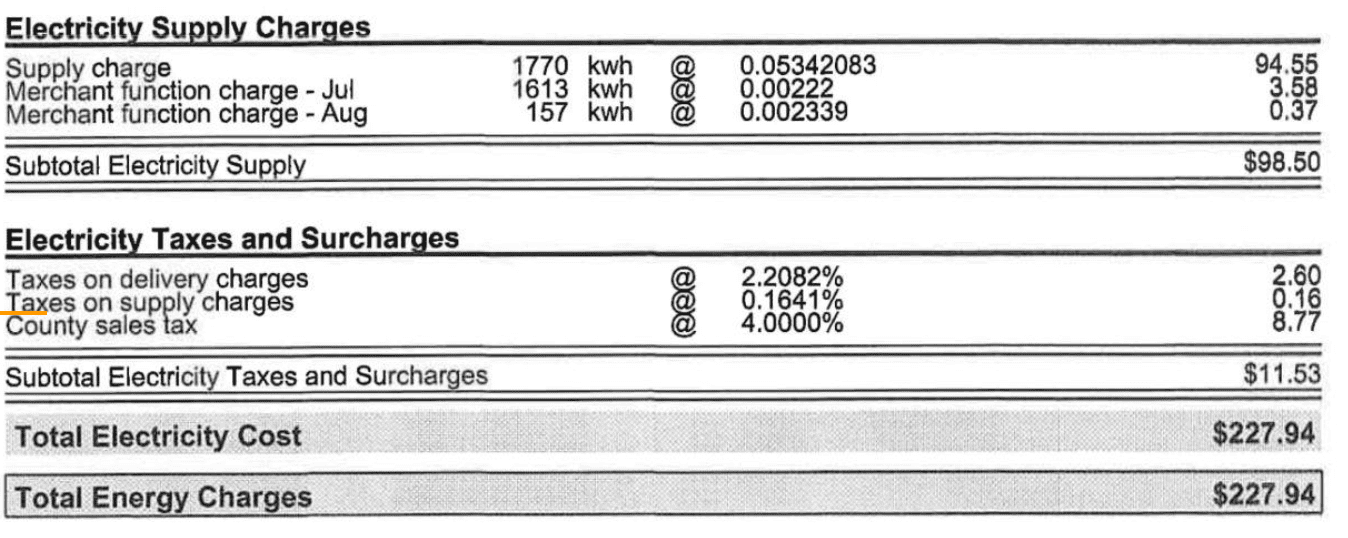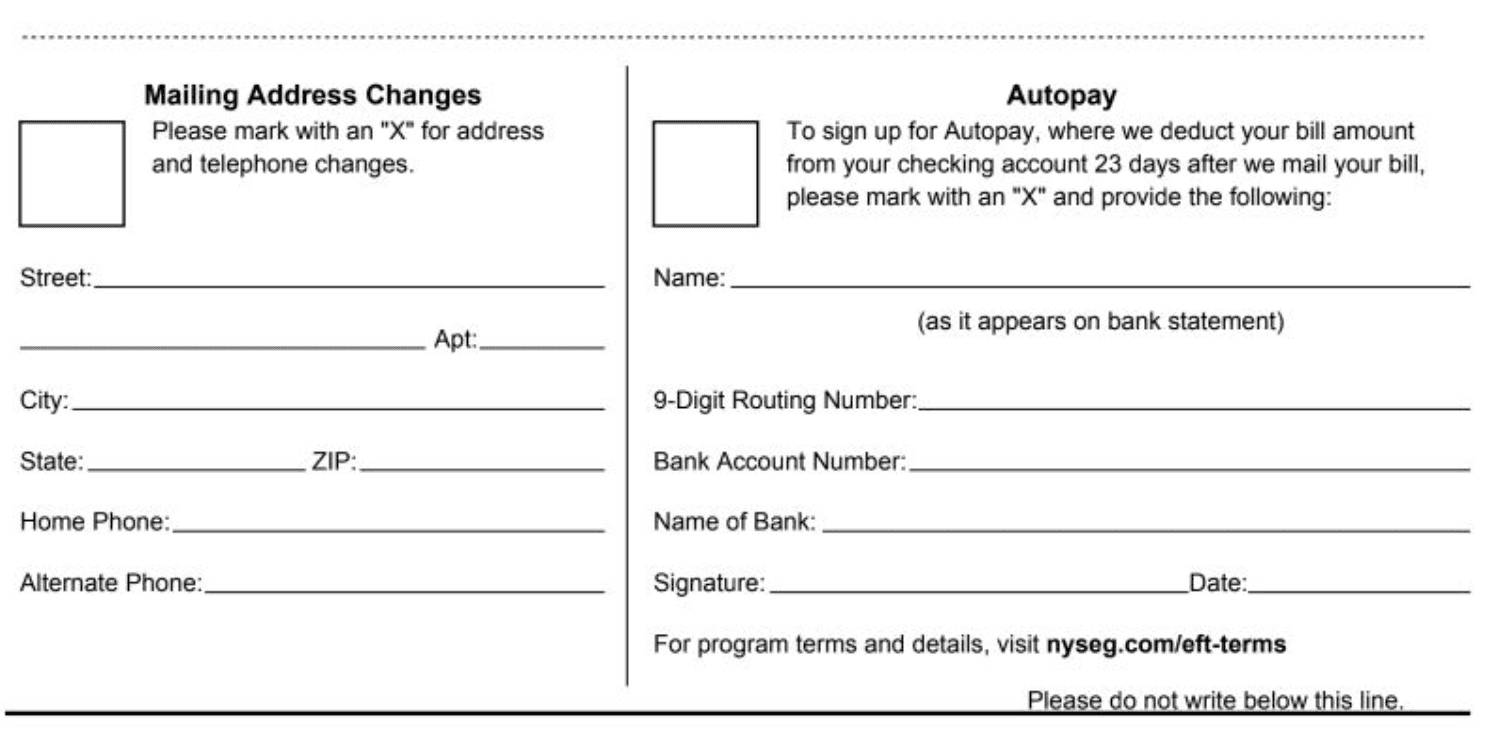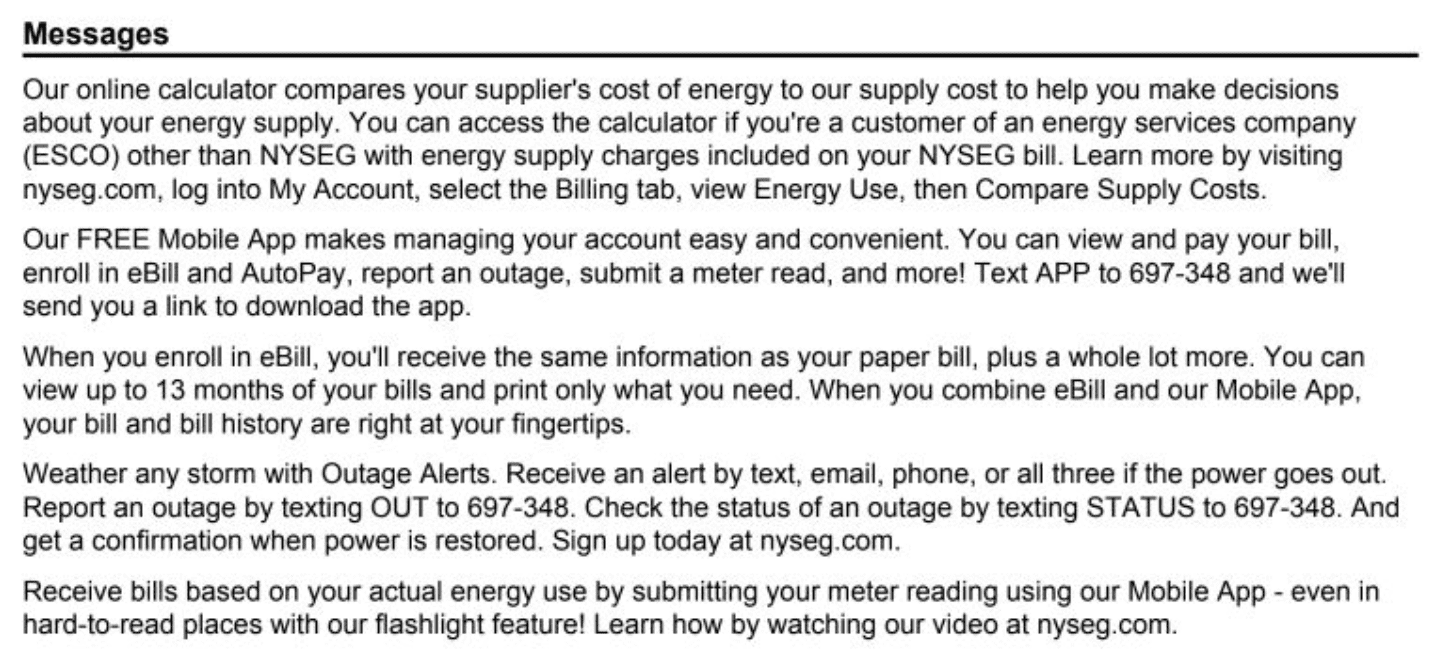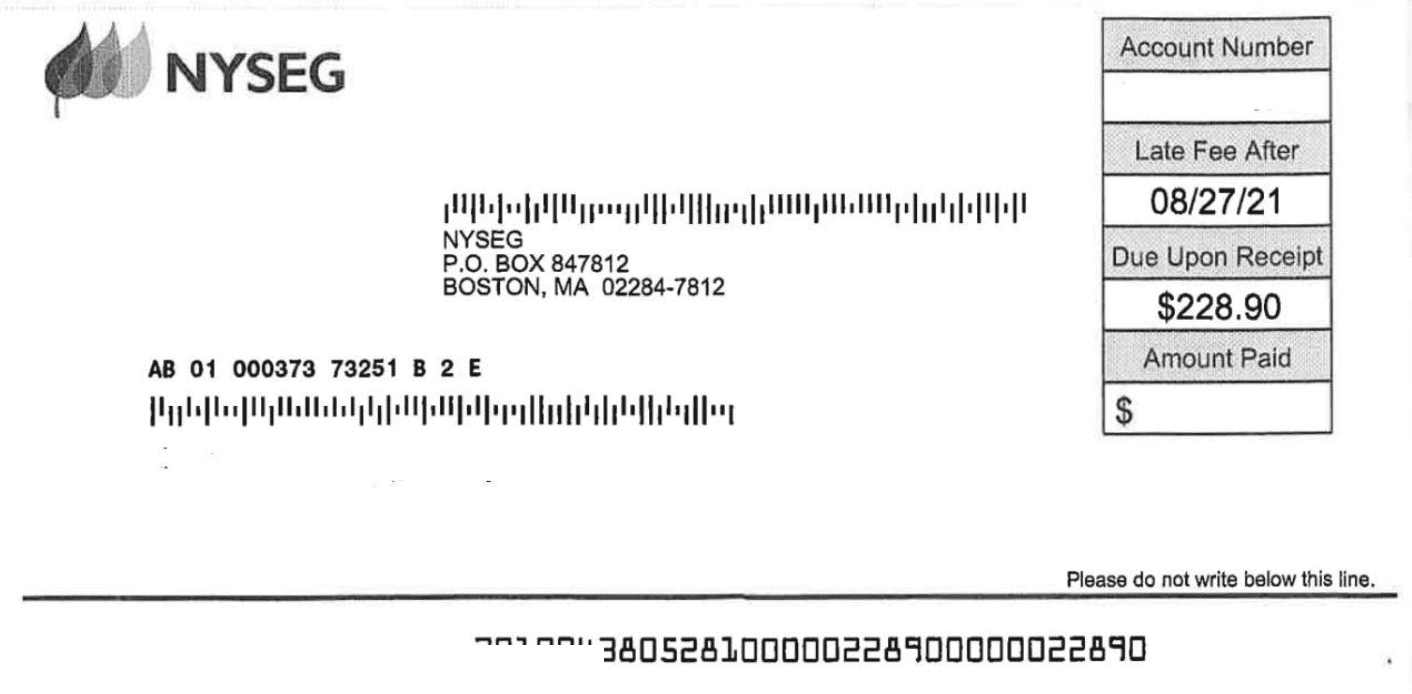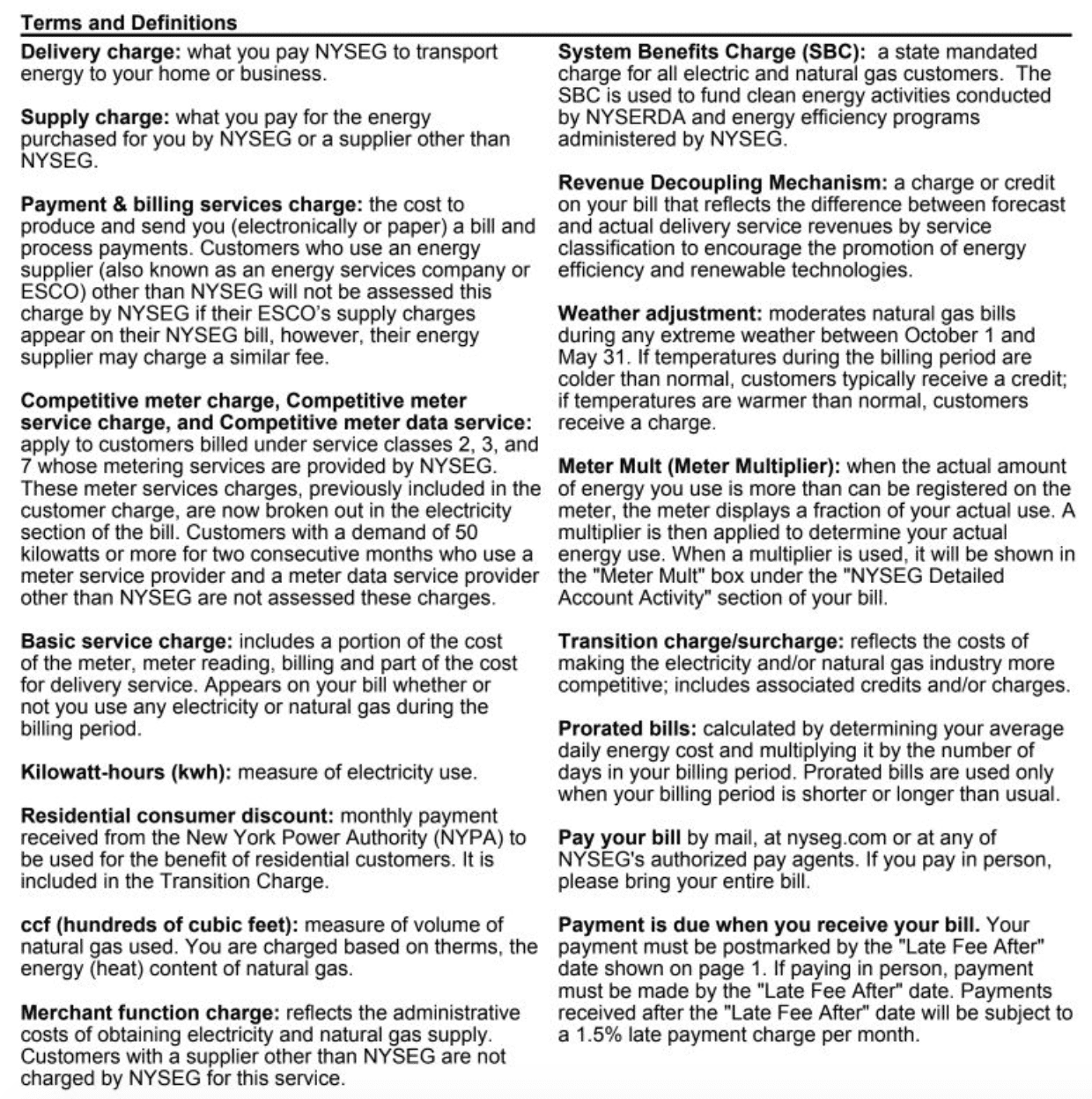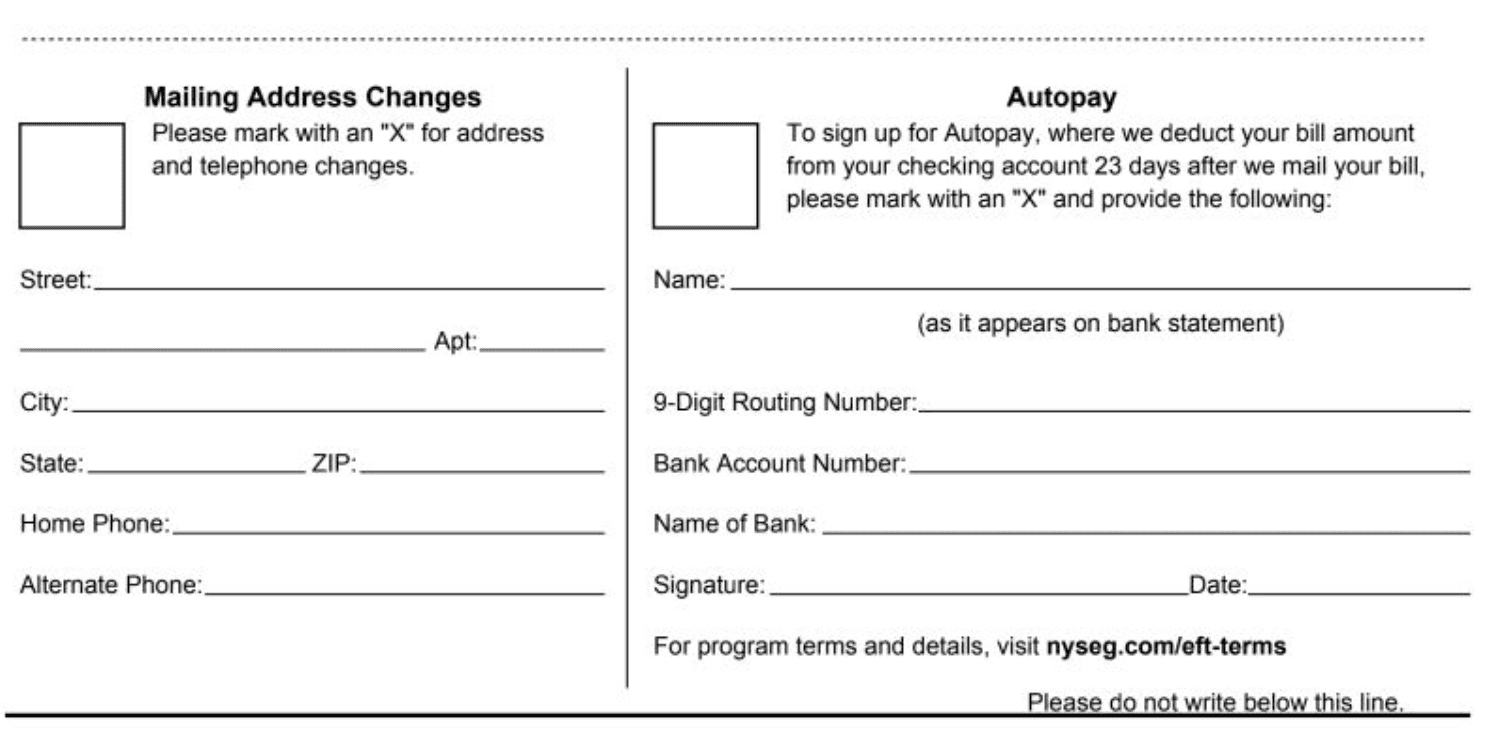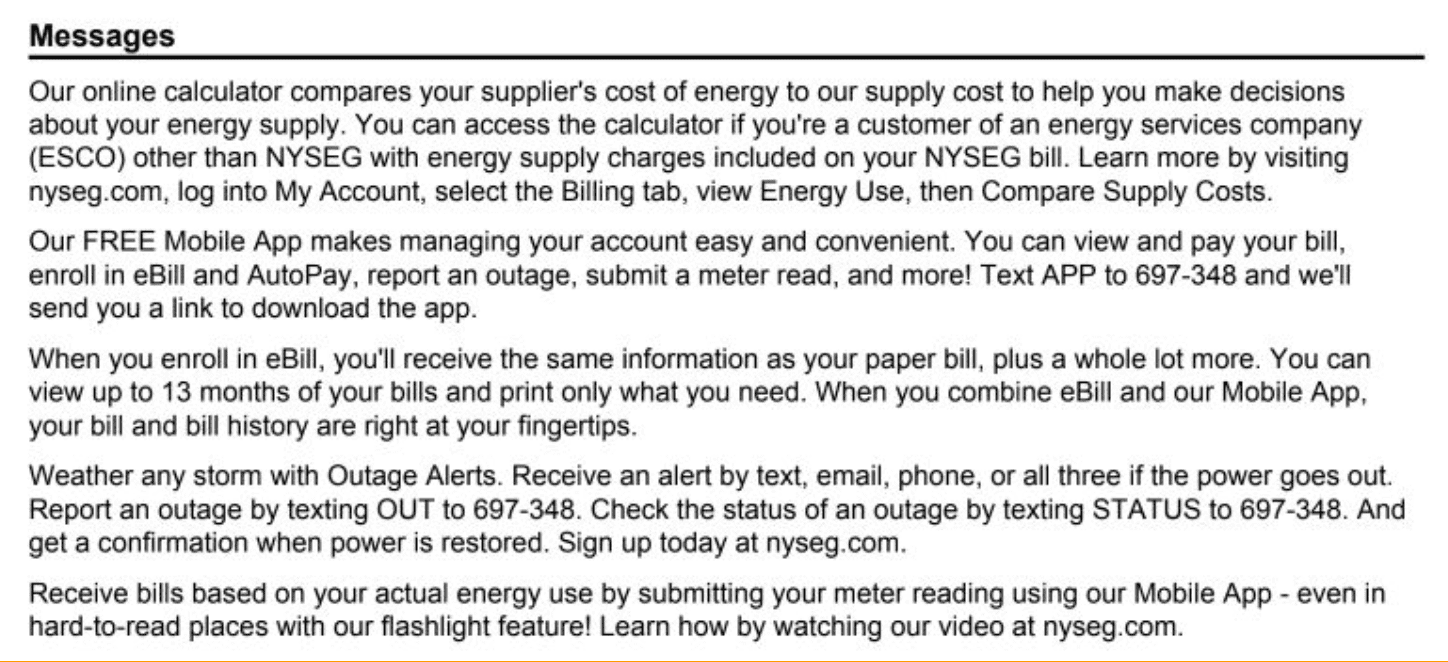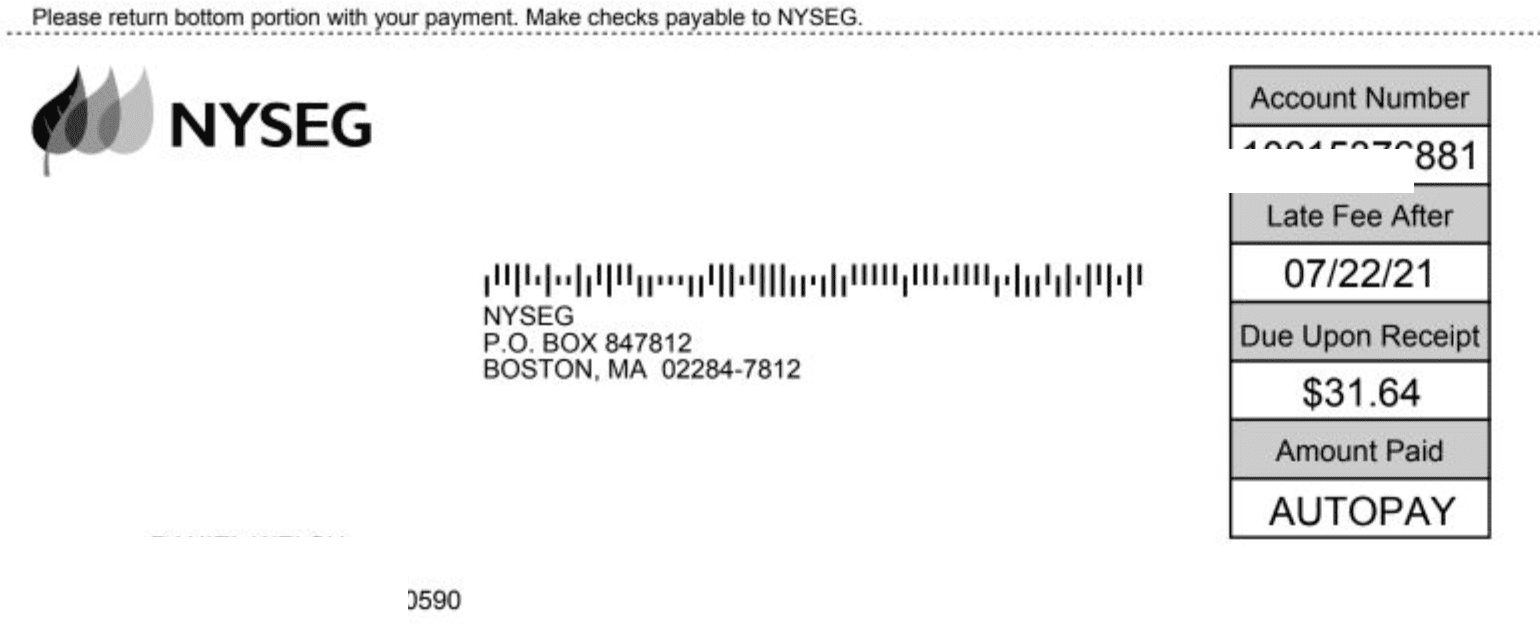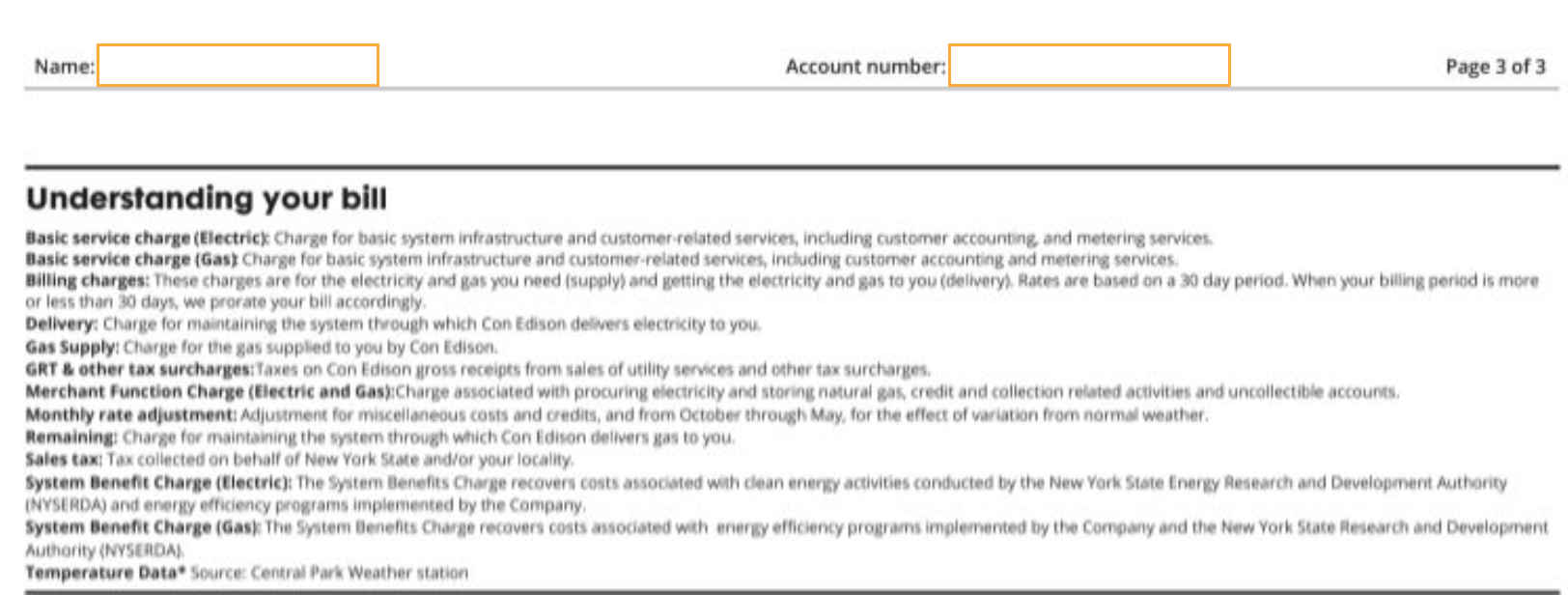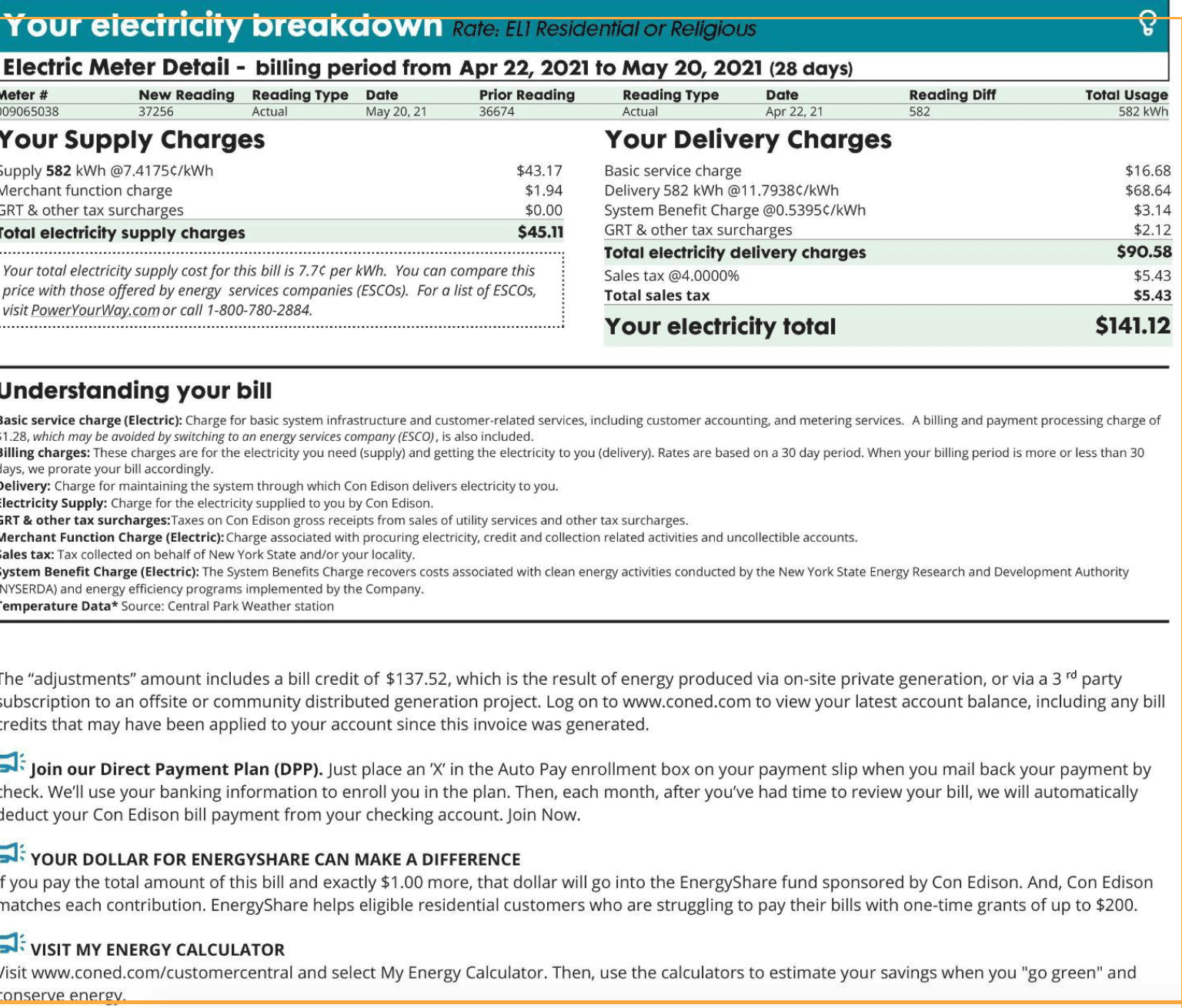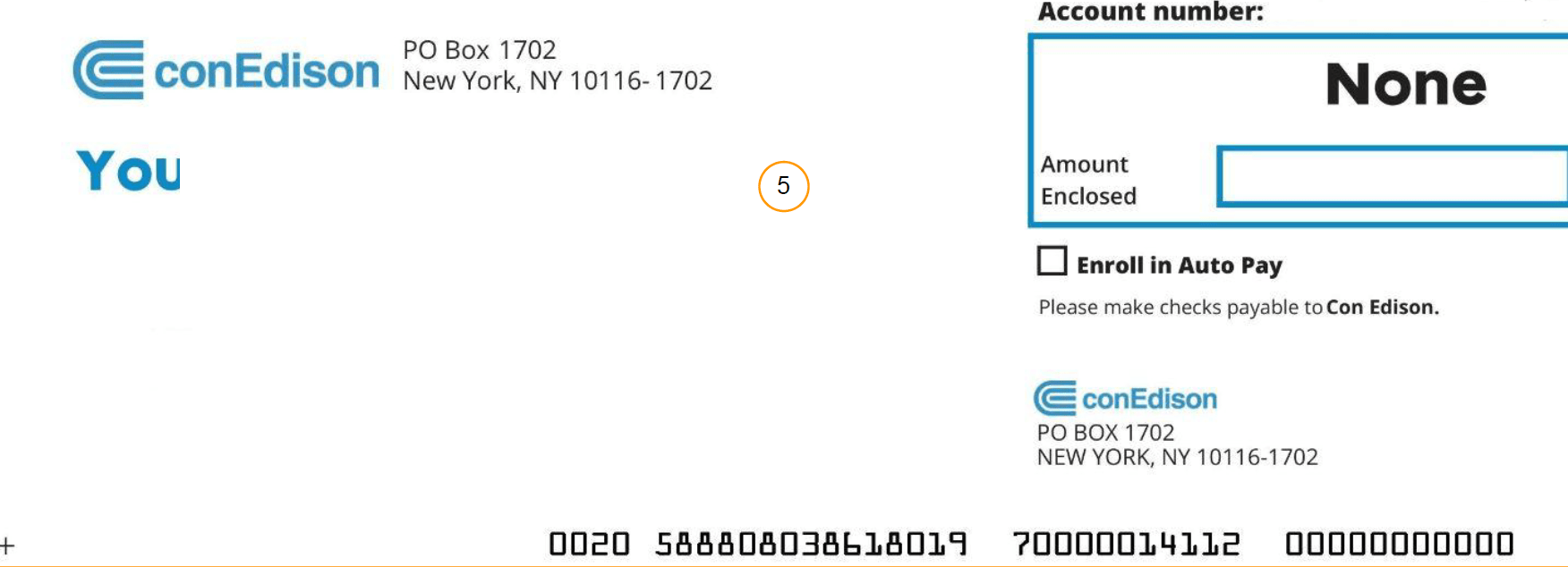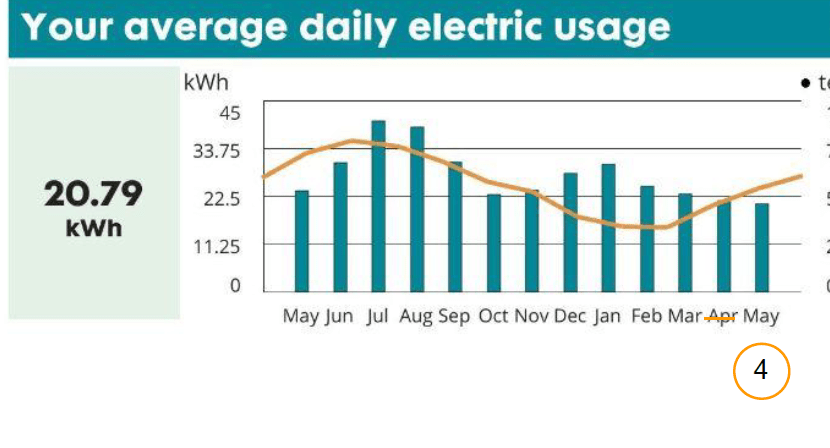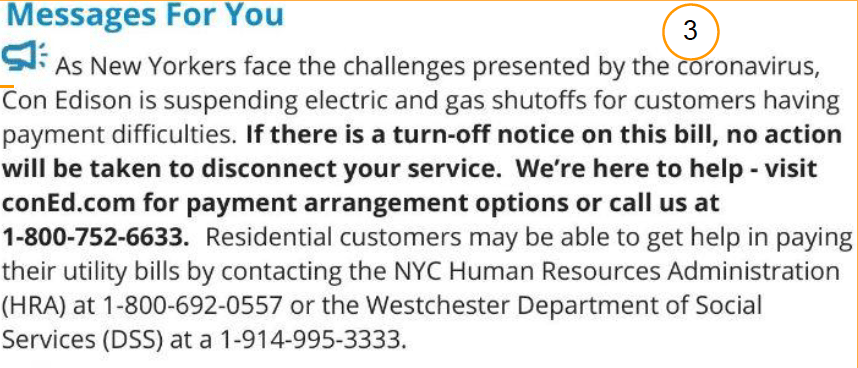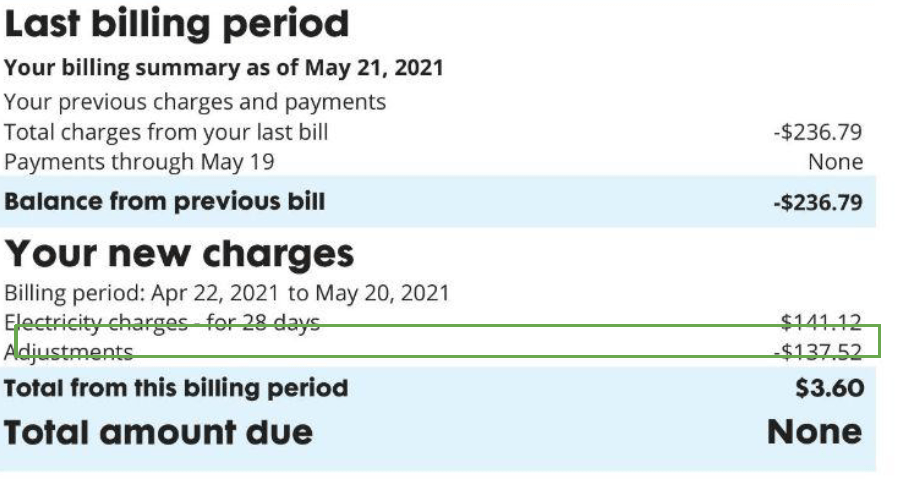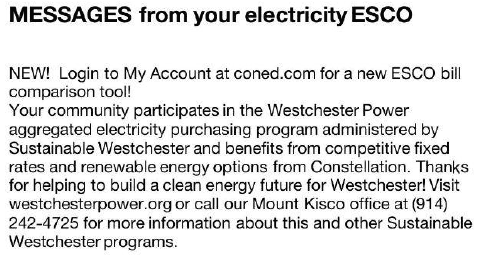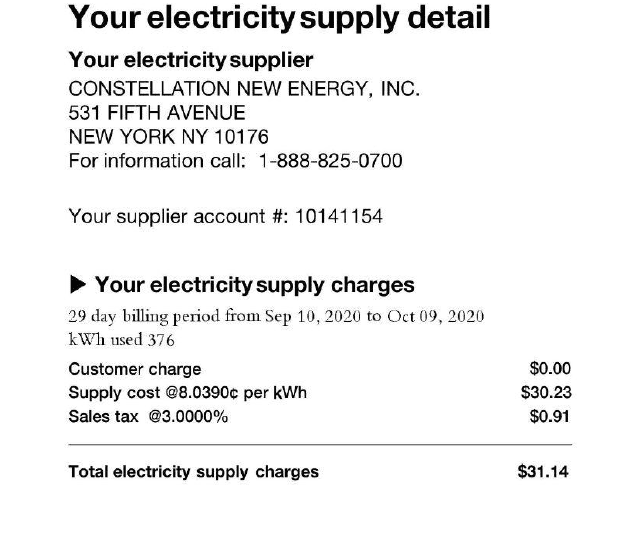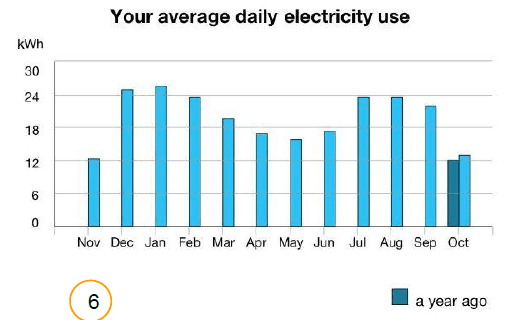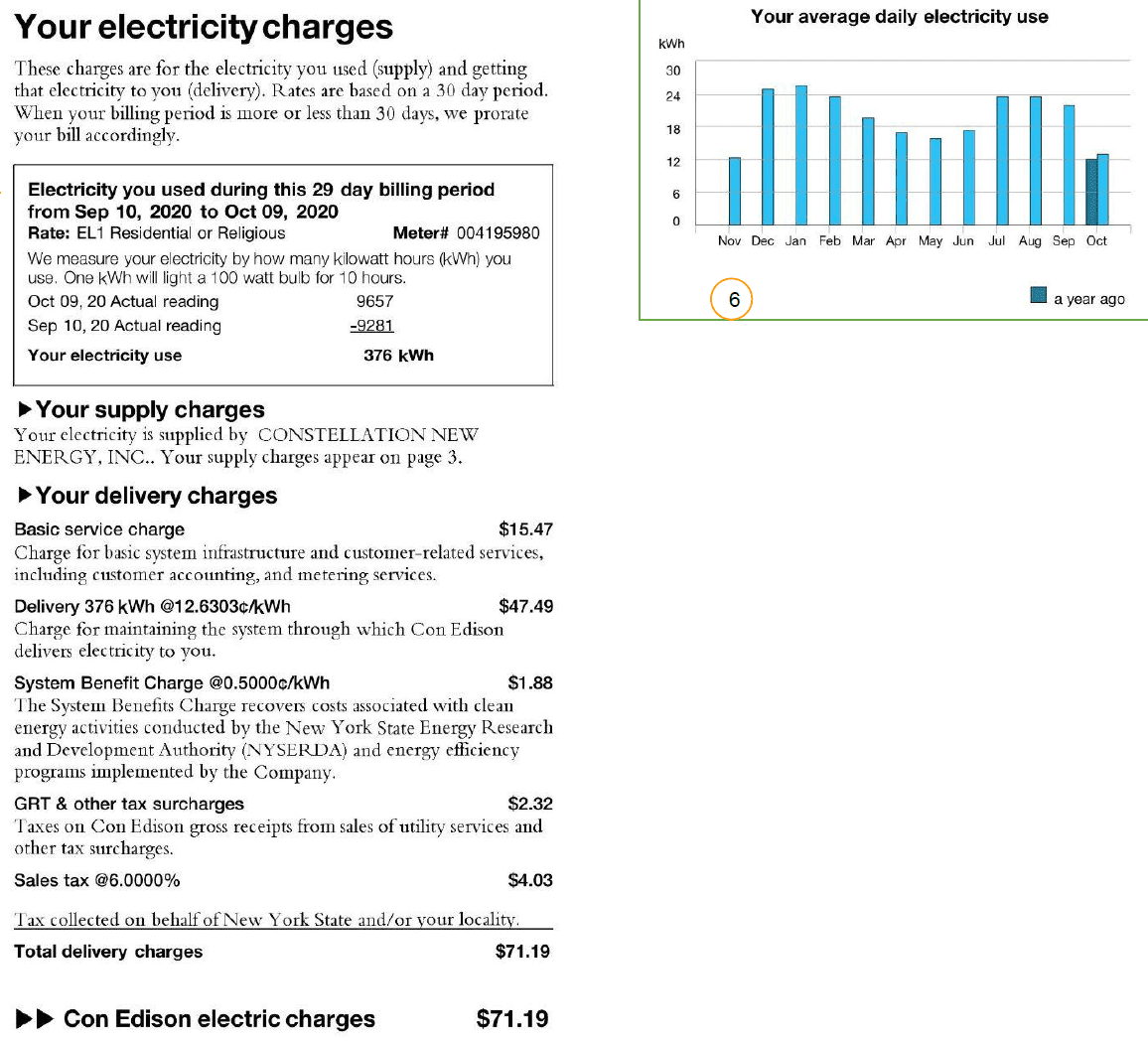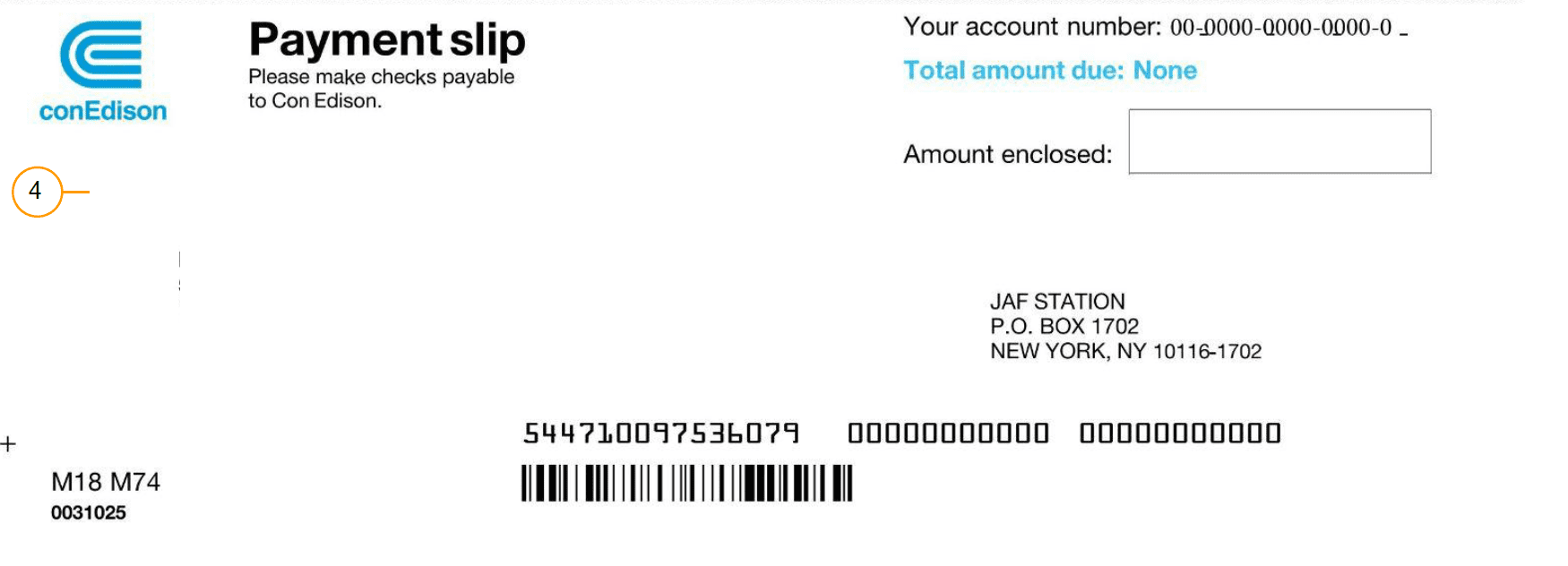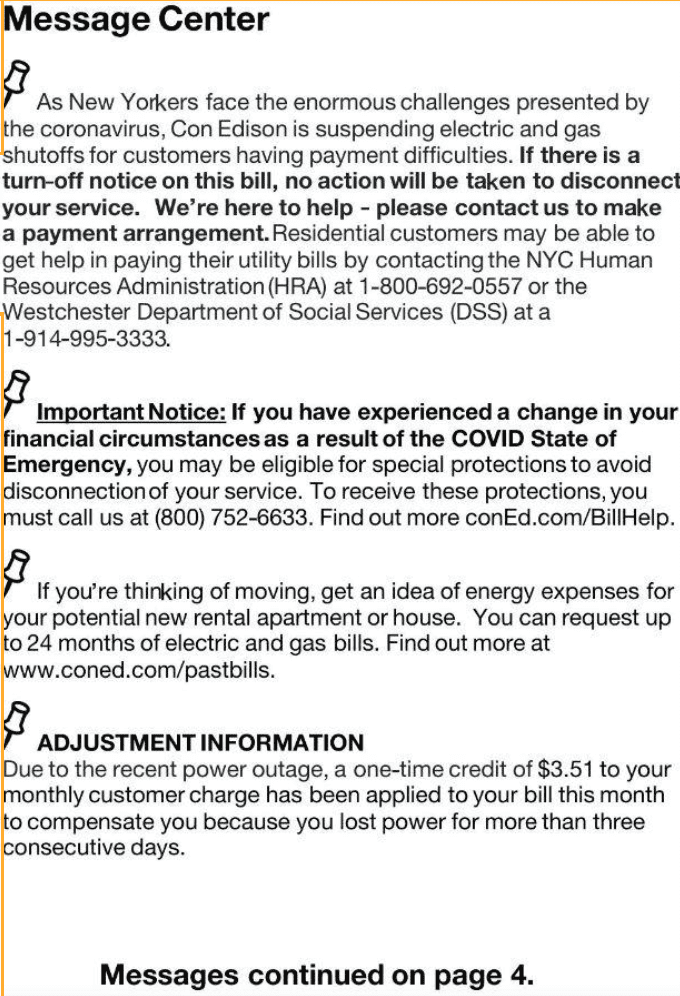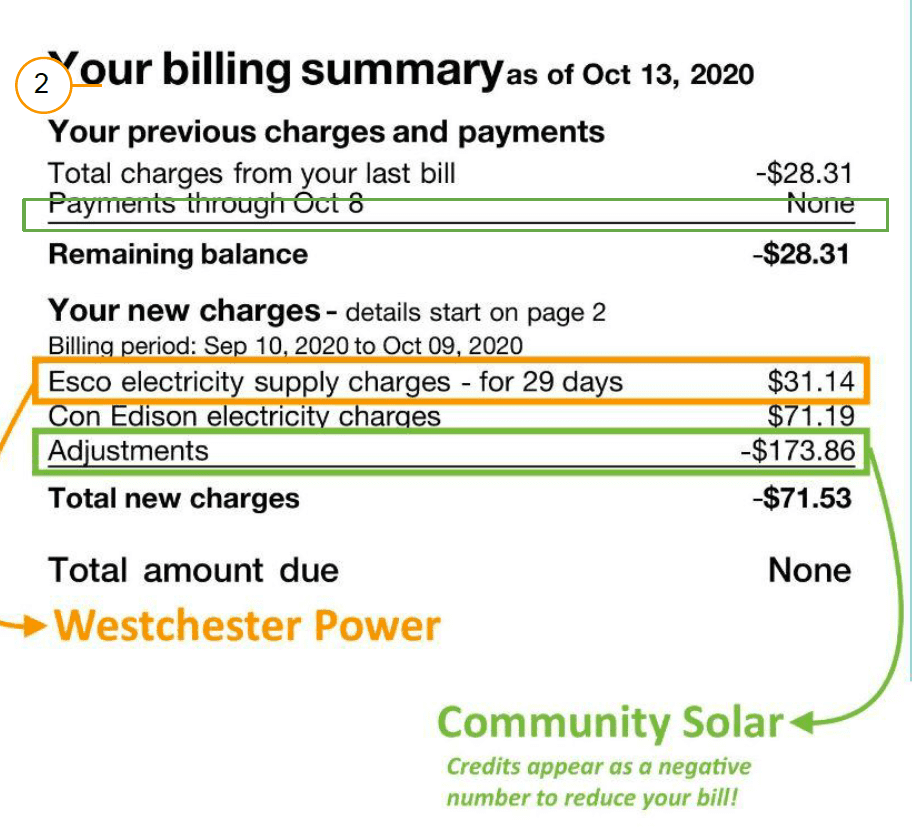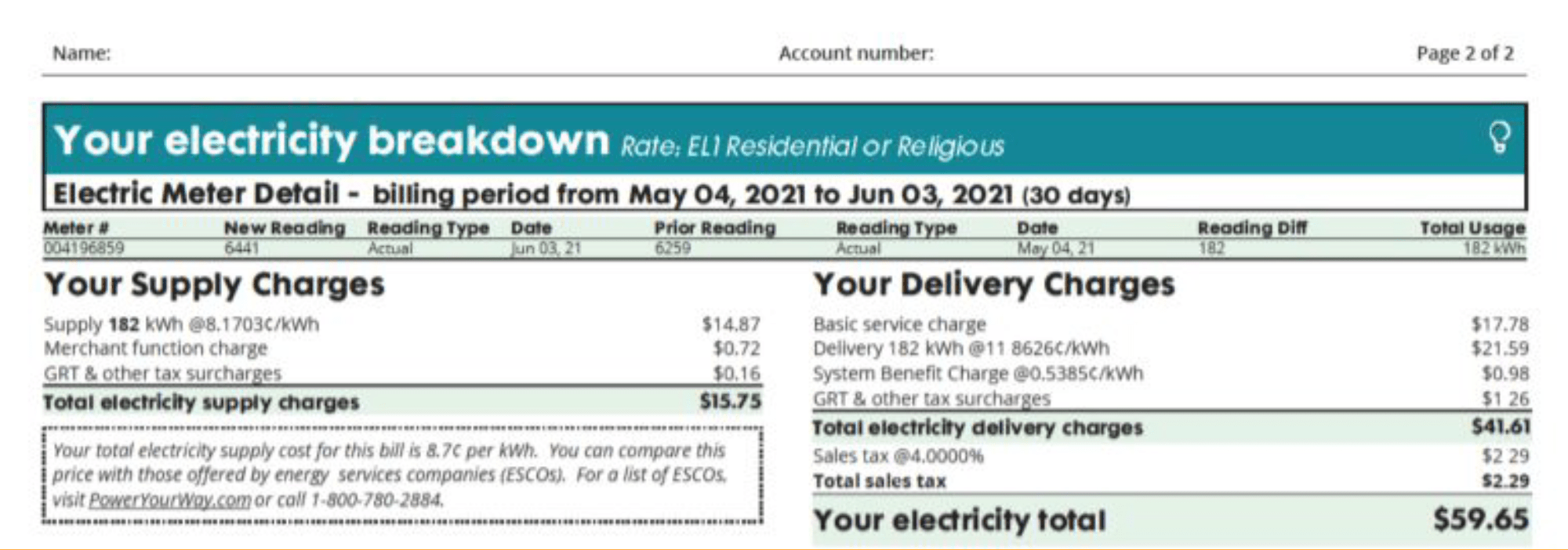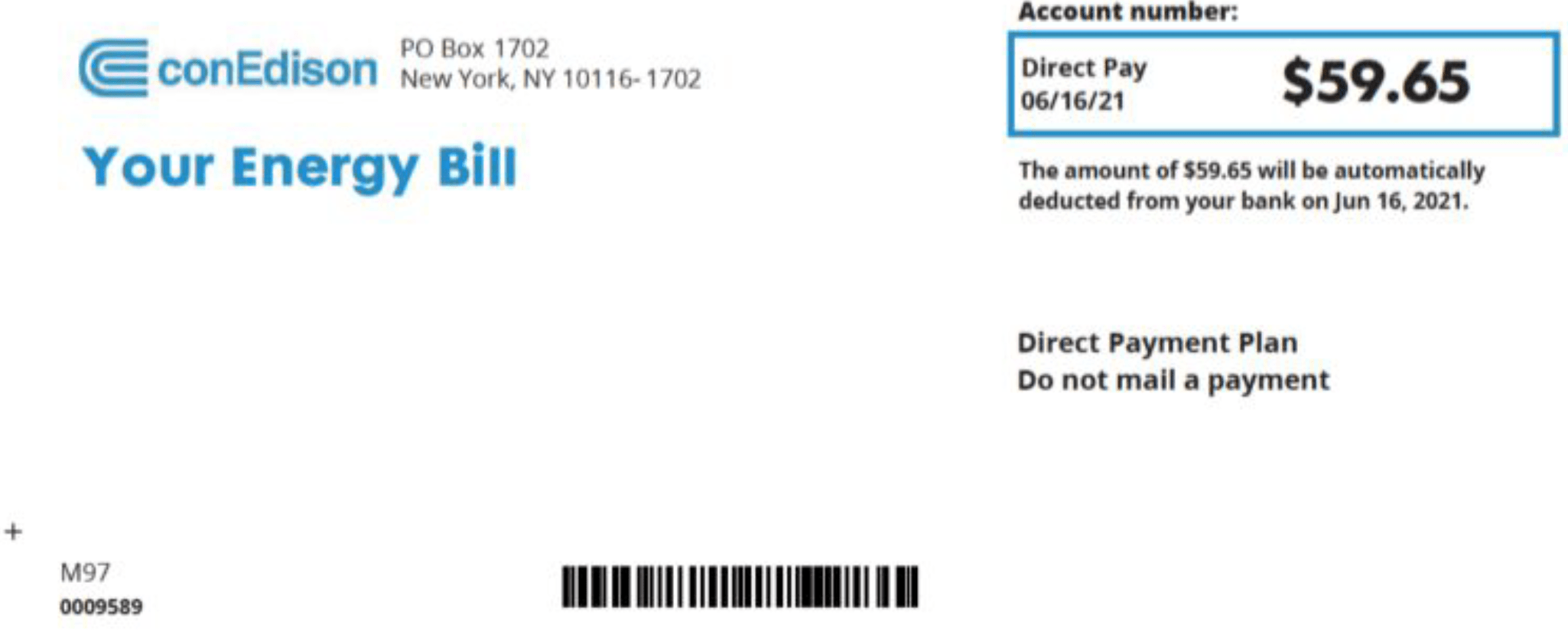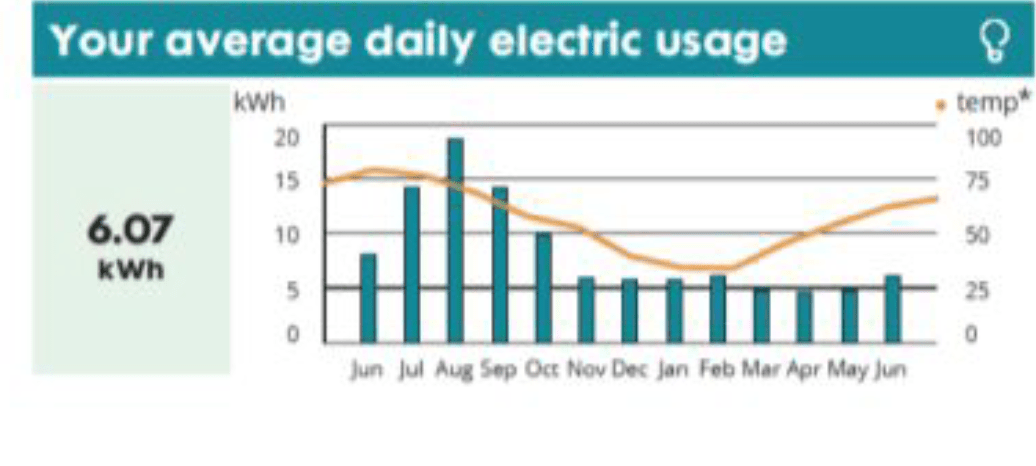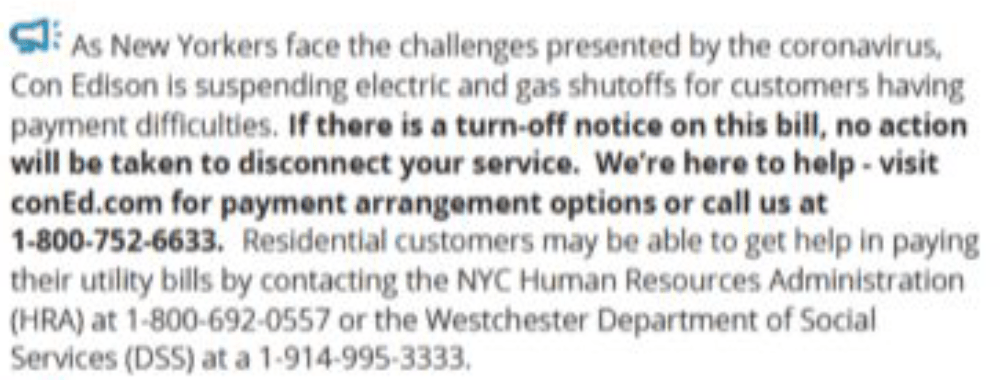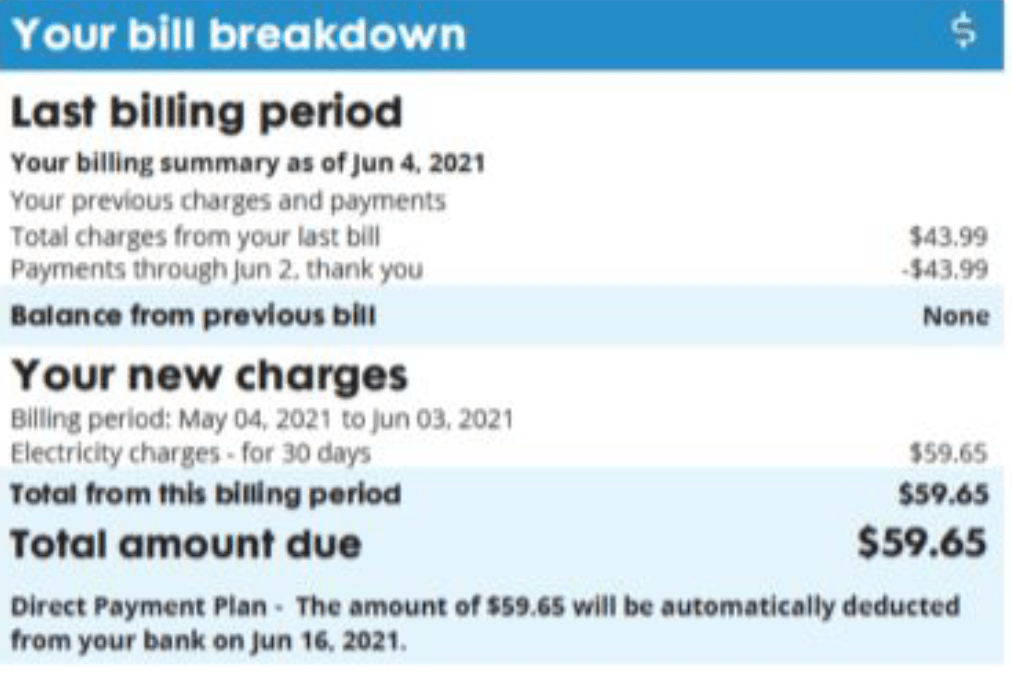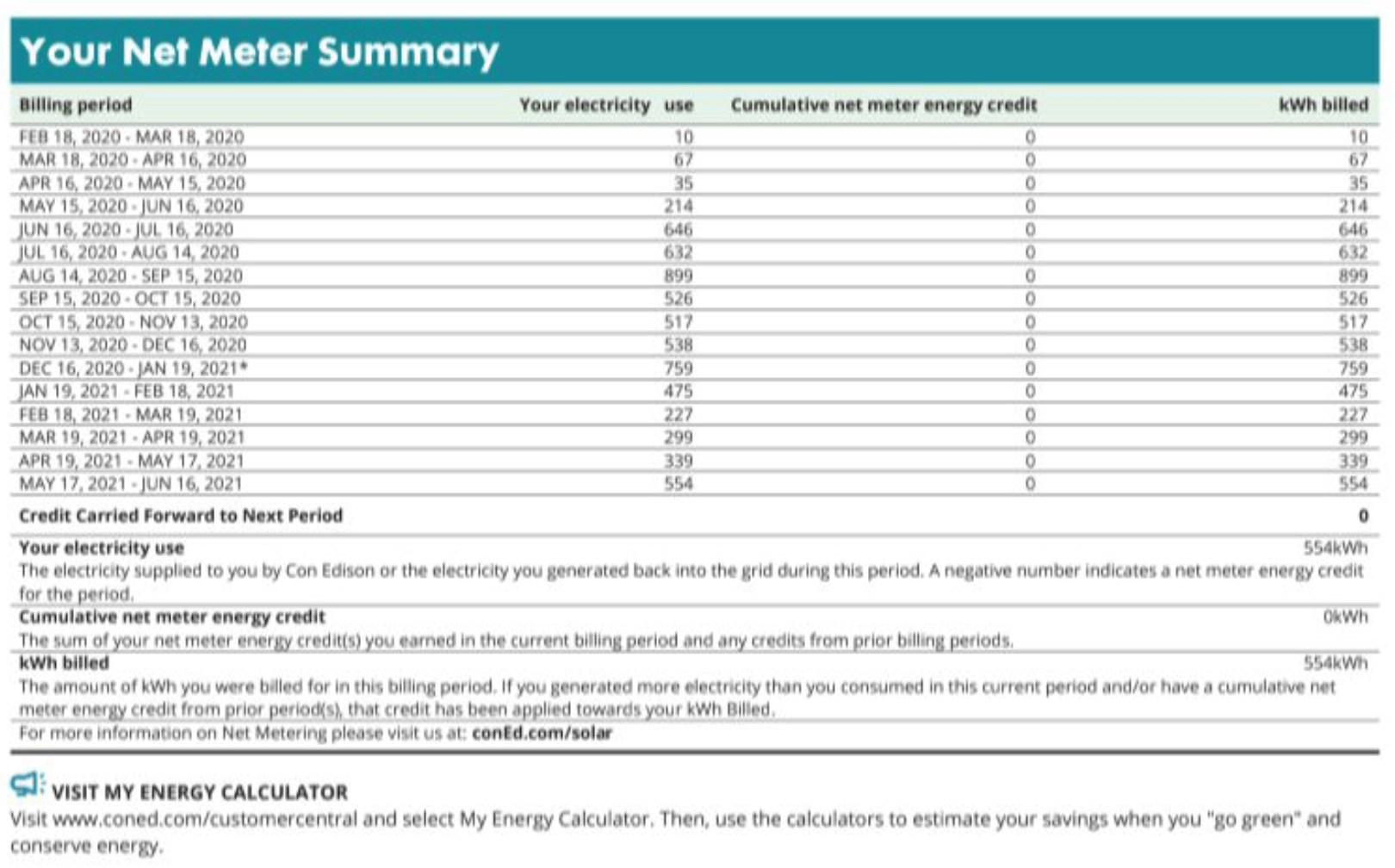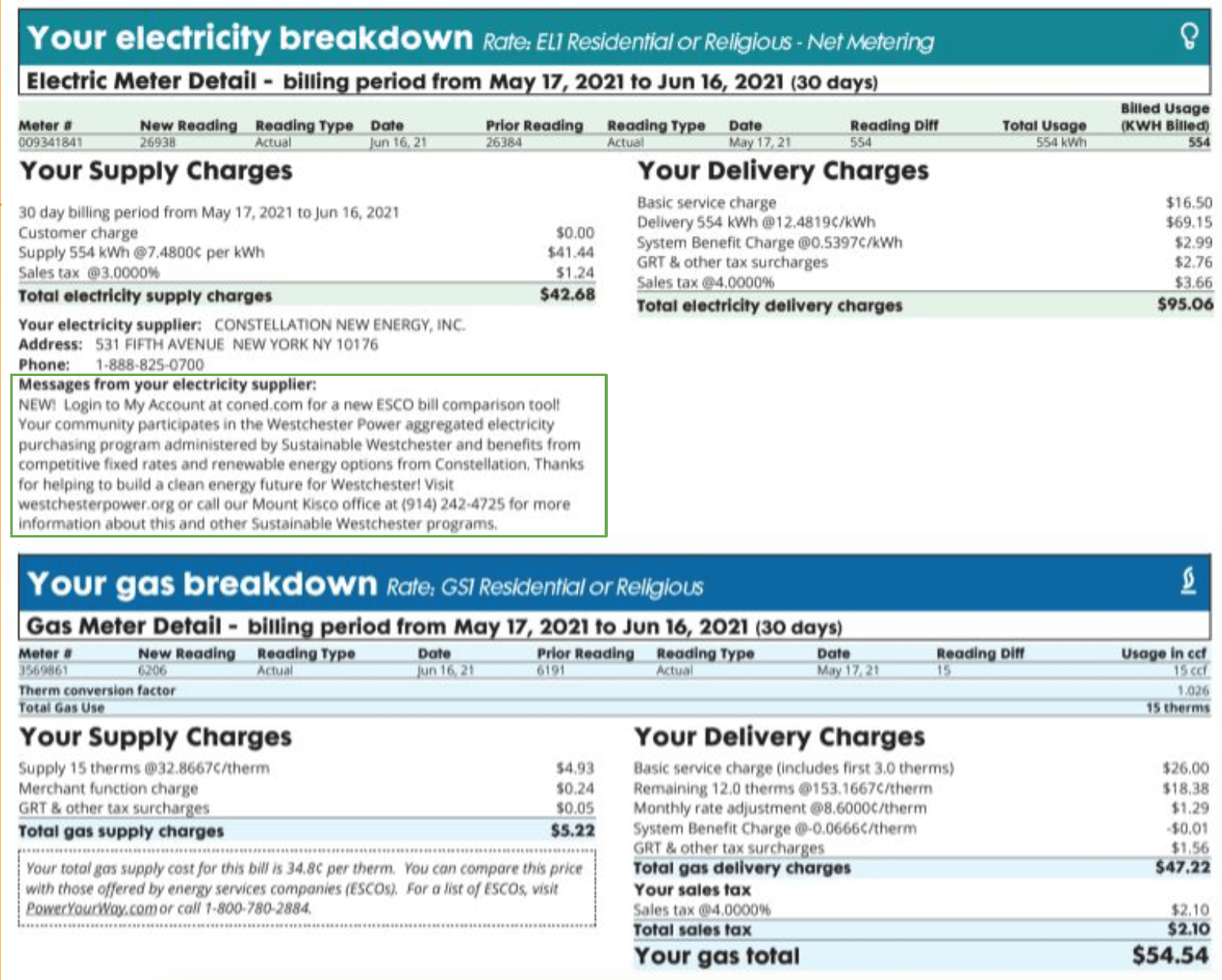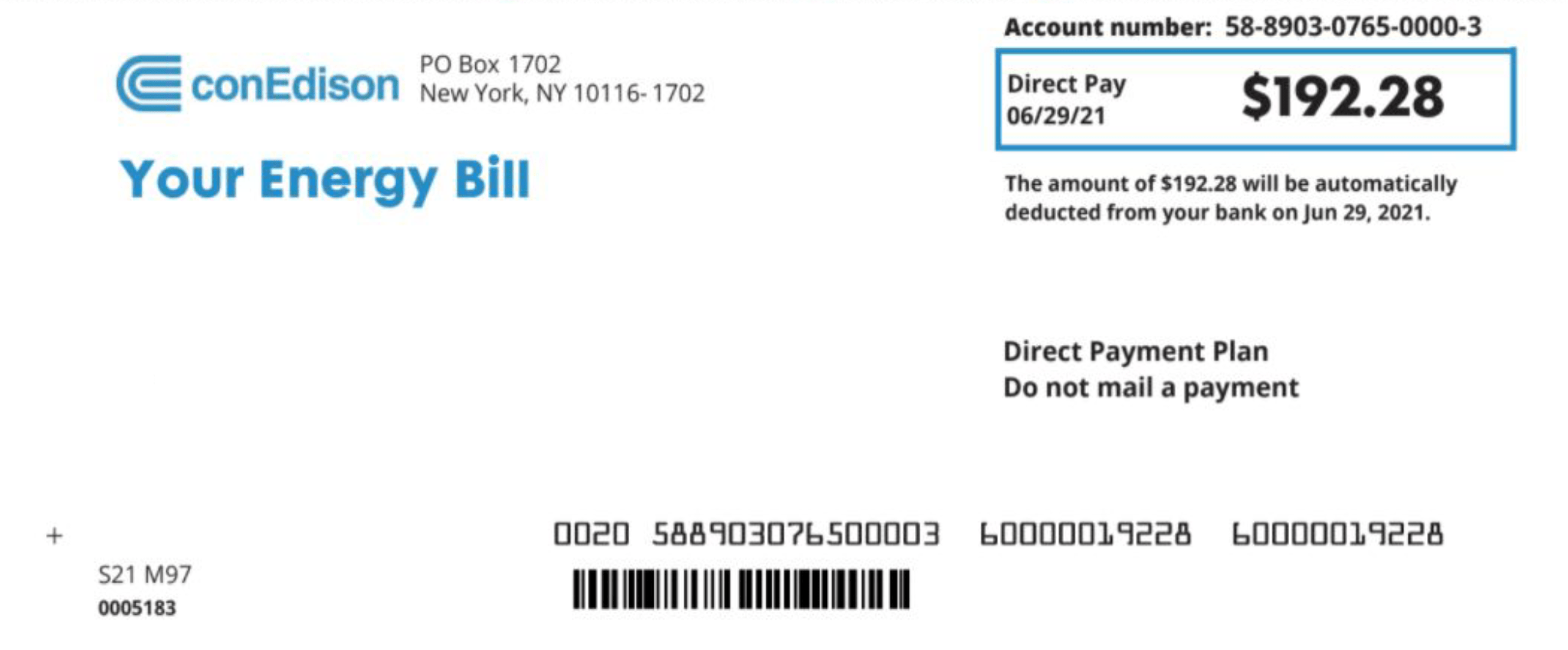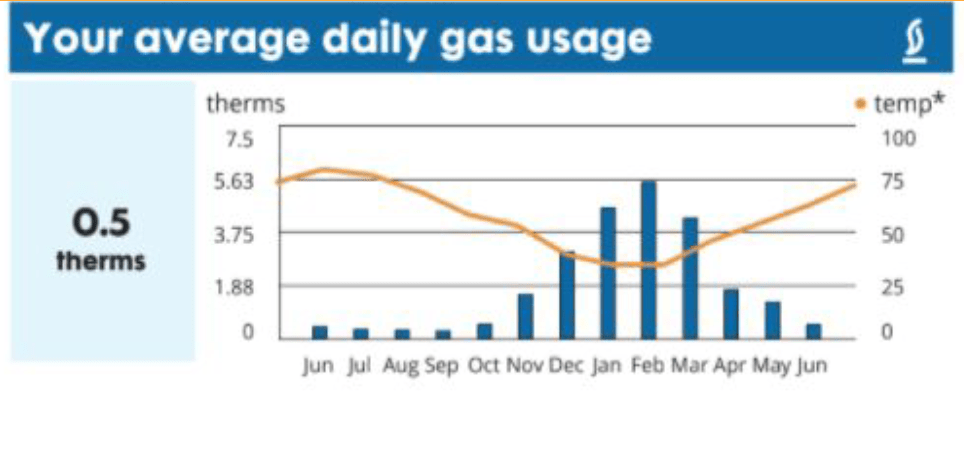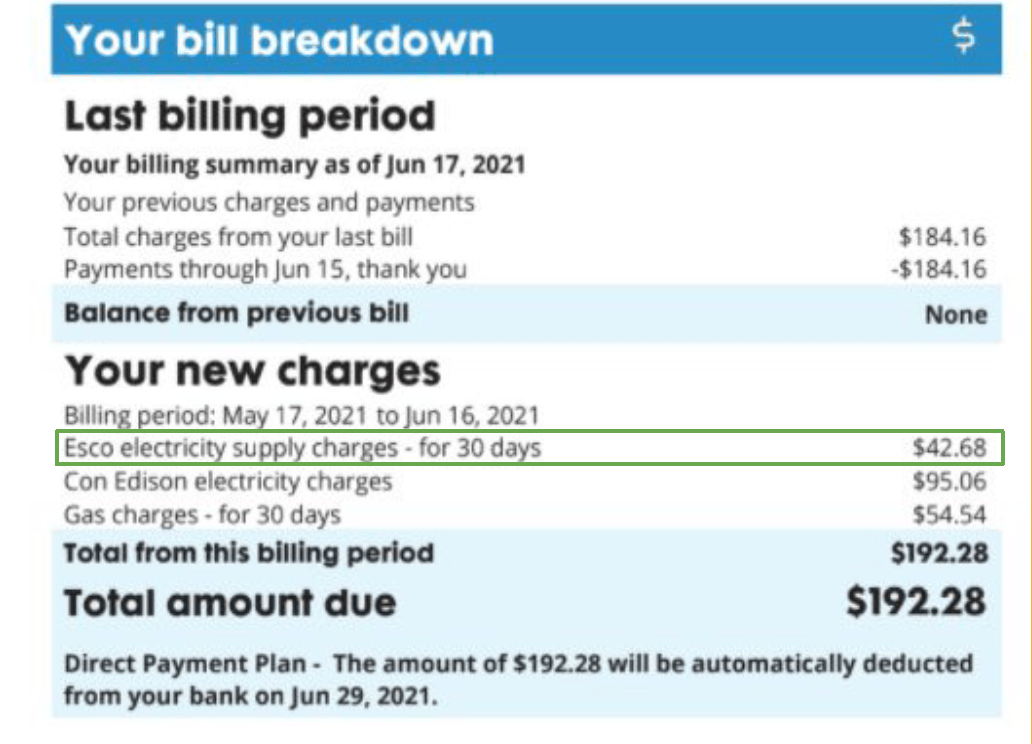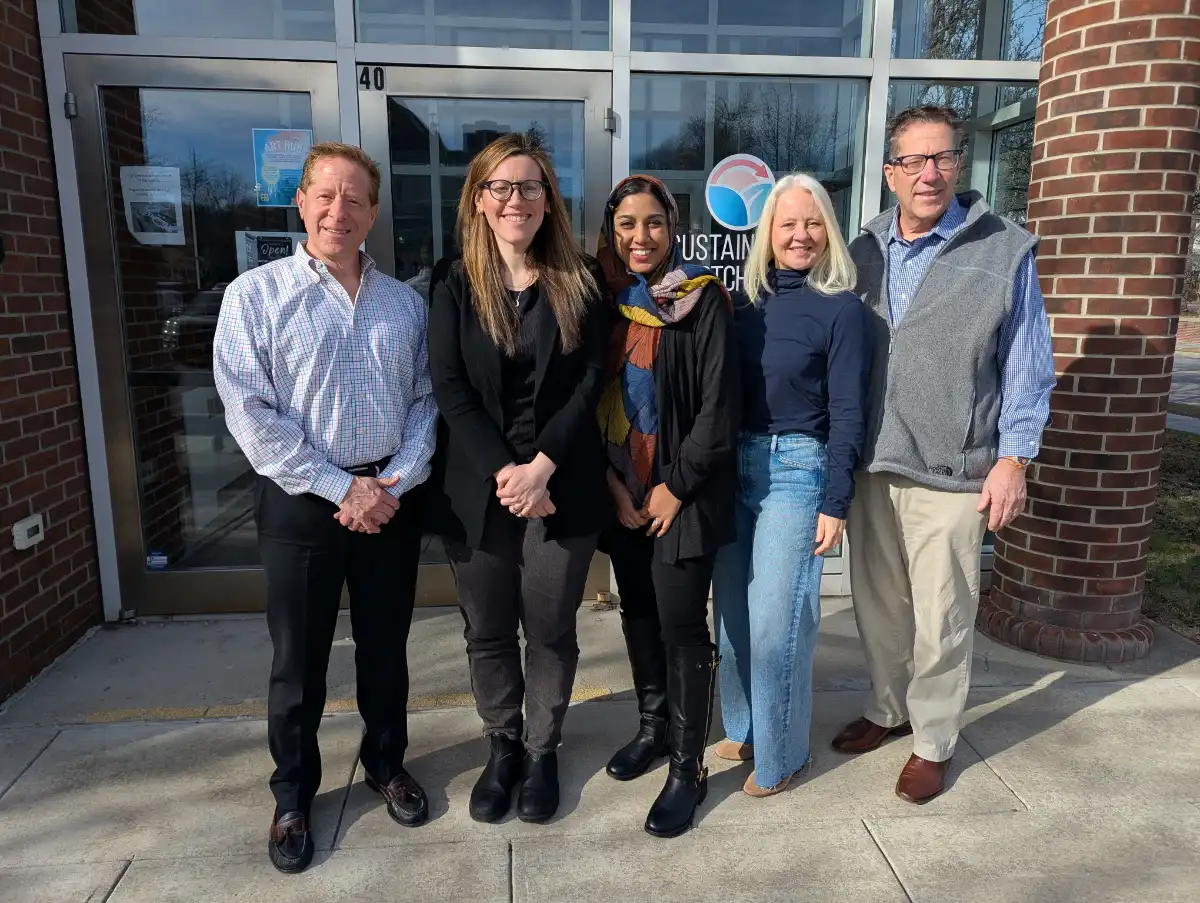


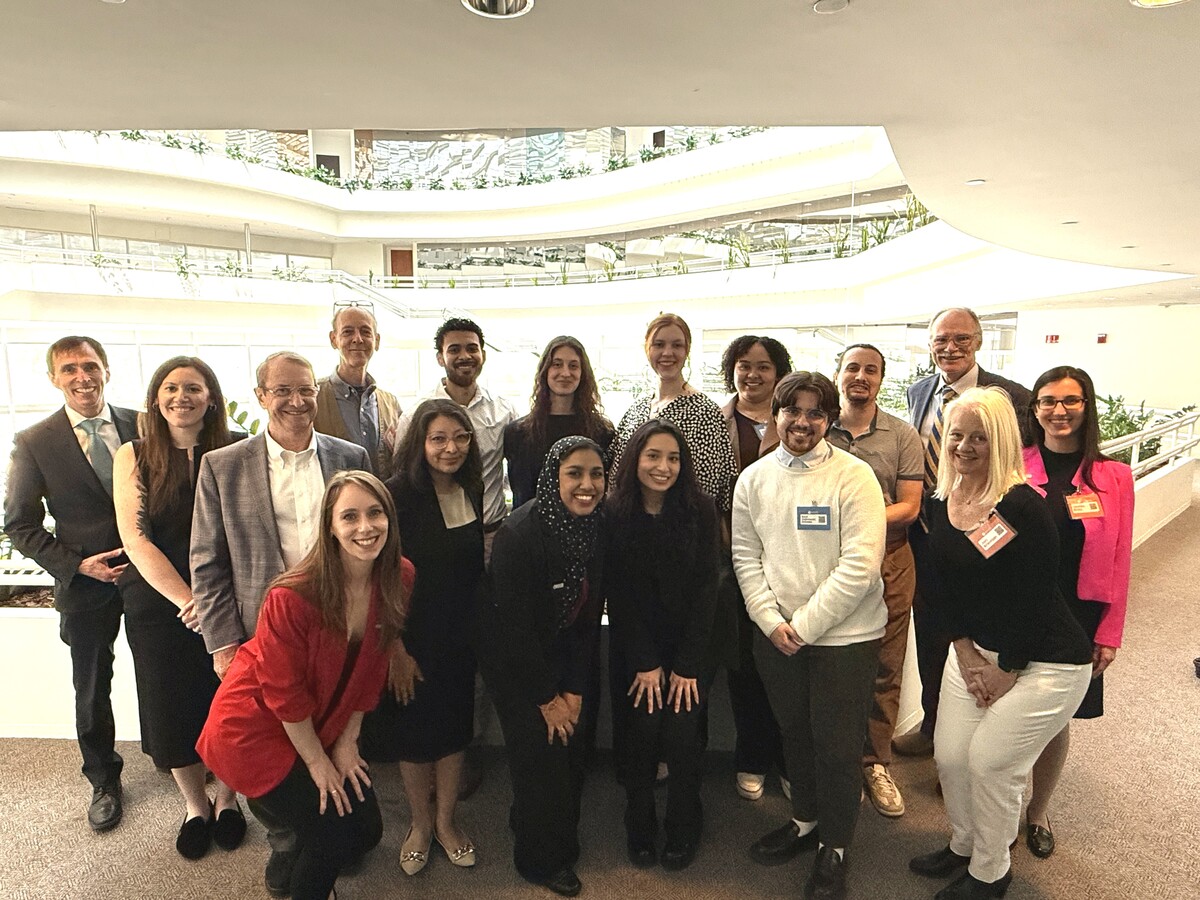
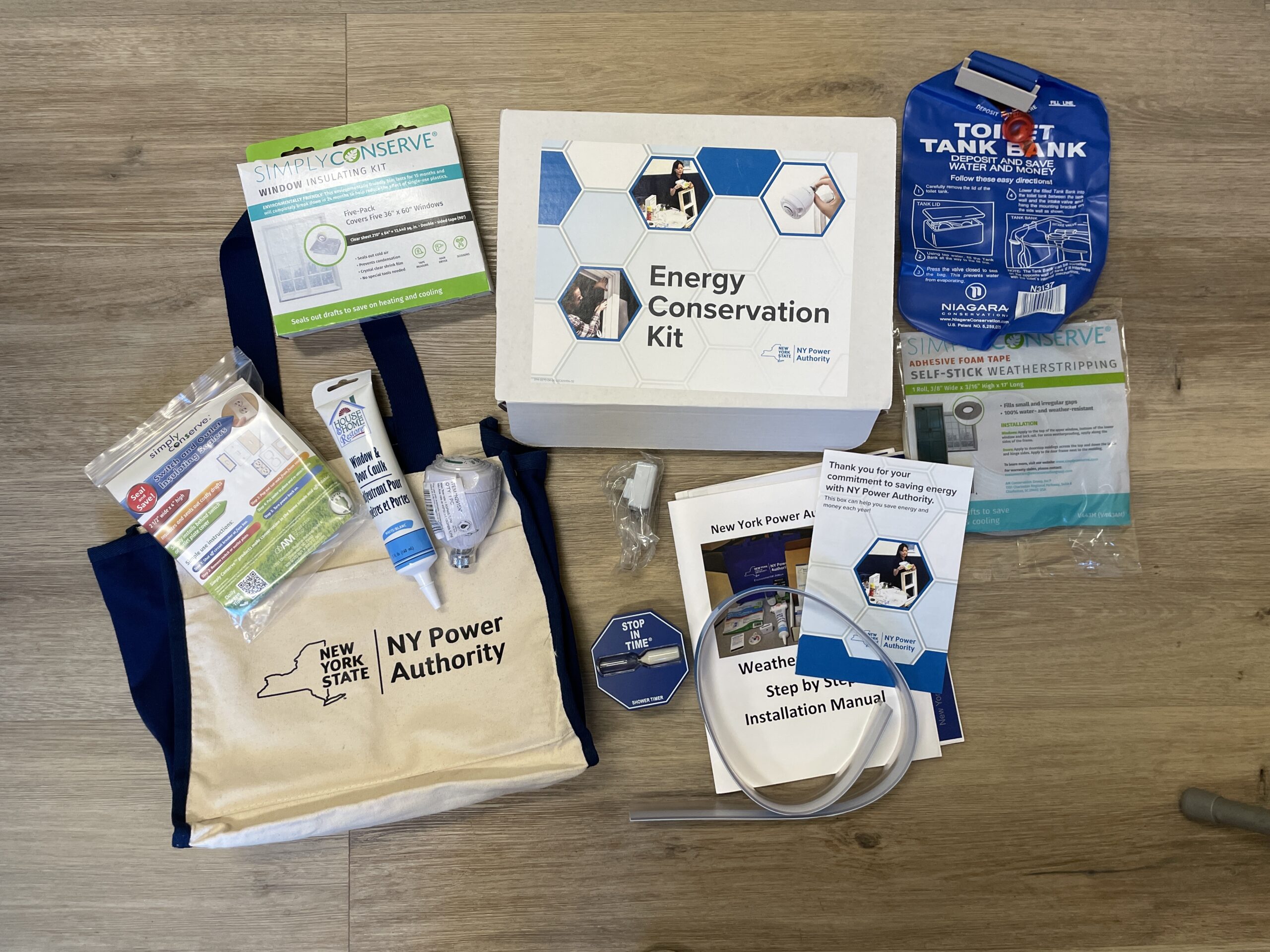
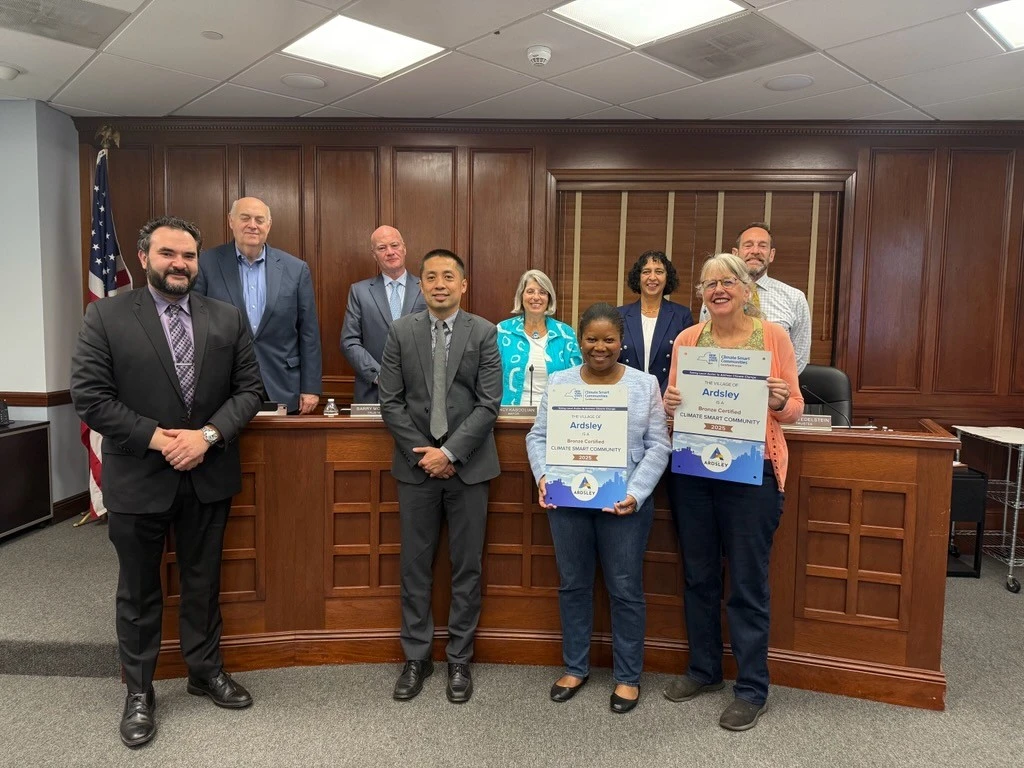
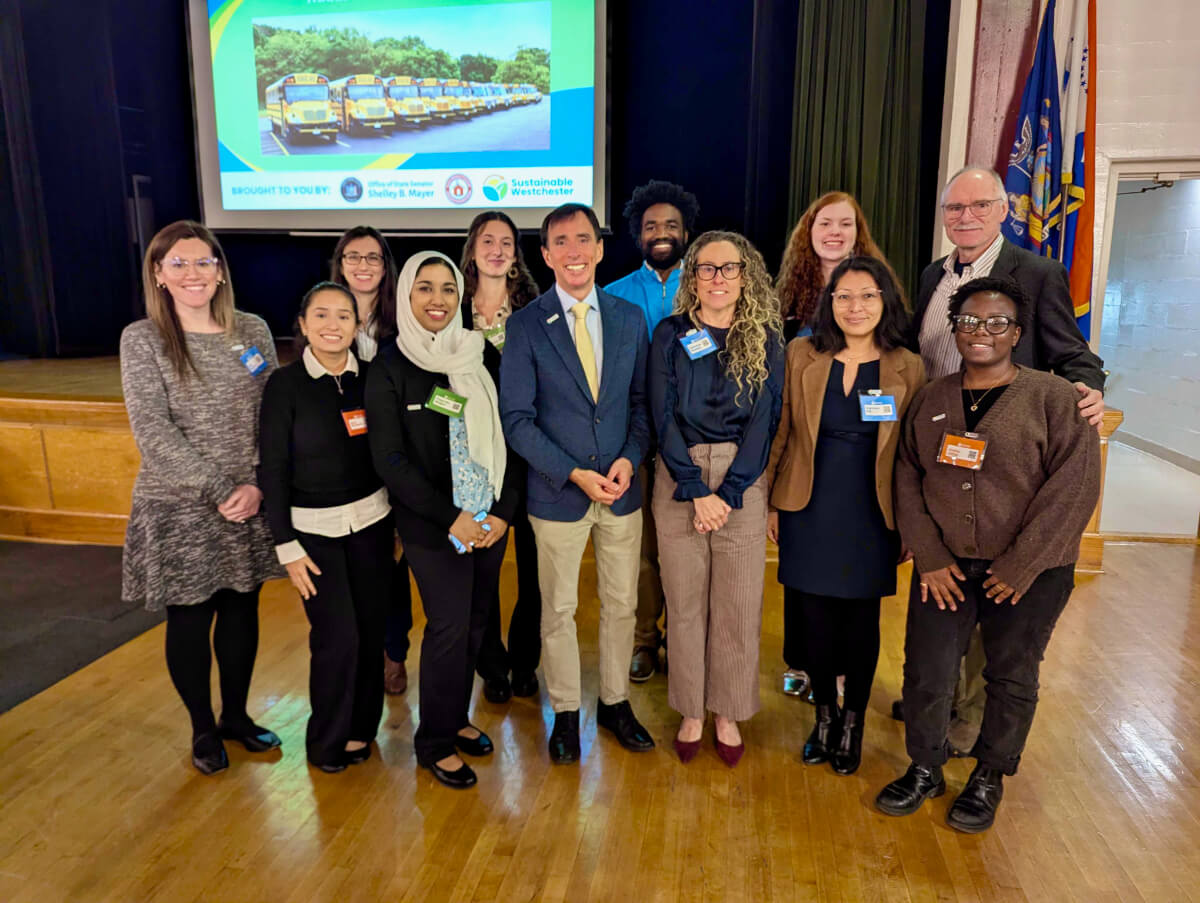
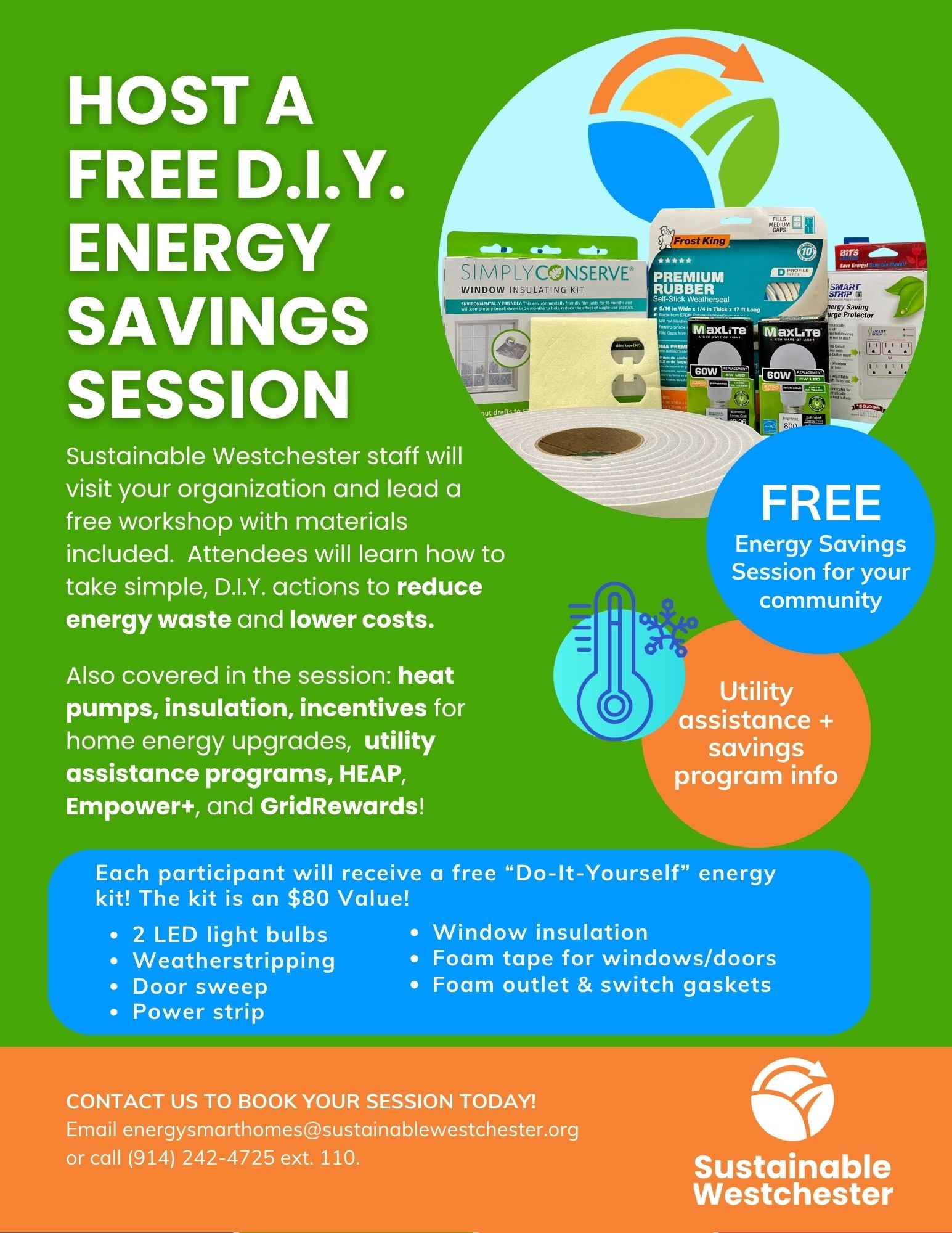
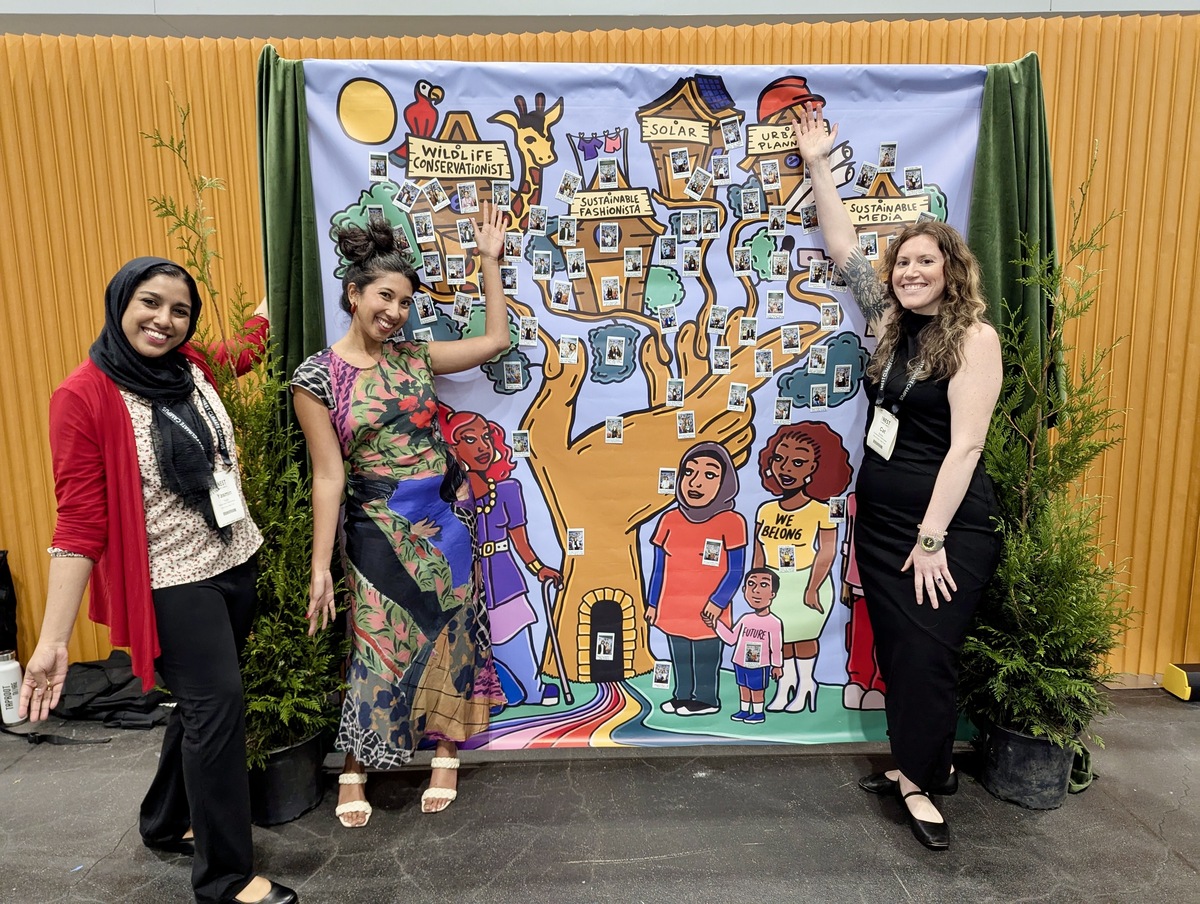
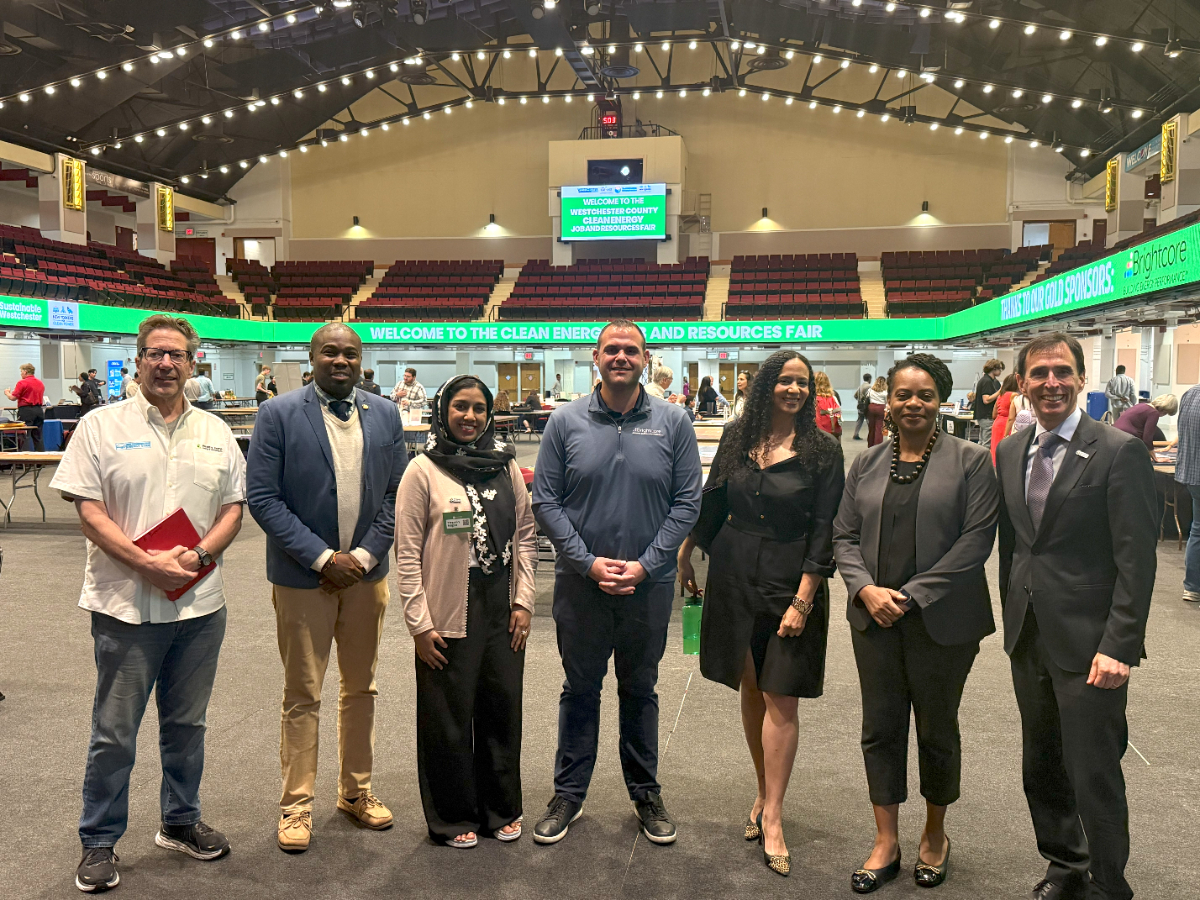
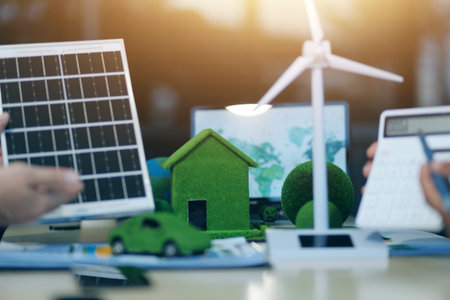


Sustainable Westchester has received a four-star rating from Charity Navigator, an independent charity evaluator. Make a donation to Sustainable Westchester here.
© Sustainable Westchester. All Rights Reserved
Summer 2025
The Hotchkiss School ’26
“My experience during the summer of 2025 as a Sustainable Westchester intern was more than positive; it was an experience that I can say was extremely helpful in enhancing skills applicable to a real job, while also exposing me to new areas of learning. Whether that included things I was already familiar with, such as creating posters for social media, or things I hadn’t done before, such as reviewing information in Google Sheets. I loved my time in the solar department; helping them create media posters was definitely one of my favorite parts, but also just being part of a team where everybody supports and helps each other was nice.”
Fall 2024 – Spring 2025 College Internship
Colgate University, Class of 2027
I am extremely grateful for the past year of my internship experience with Sustainable Westchester as a Remote College Intern. This internship has provided me with a strong foundation of what it means to work at a nonprofit organization and how powerful they are in forming relationships / educating the public, while also helping me to narrow down my career interests and enhance my professional development skill set. Focusing on the marketing and outreach for GridRewards I helped to coordinate logistics for a Girl Scout Heart of the Hudson x Sustainable Westchester partnership as well as communicating with local newspapers and promoting events. Through this experience I had the opportunity to define a lot of my skills in communications and public speaking, while also honing in on my time management and maintaining my internship simultaneously with my course work. I look forward to building on this foundation in future roles and staying in touch with the connections I have established.
“I serve as an informal energy advisor to our board. About a year ago (2022) I started working with Logical Buildings to figure out how we could implement demand response in our building, which is a 194 unit condominium. We identified a number of different pieces of equipment that we could potentially shut off, with minimal effect on our occupants. Most centered on large air handling equipment, which on a hot day uses about 200 kilowatts of electricity. We worked with the board and it was a team effort. We informed the tenants of what would take place, and worked with the building management (resident manager, handyman, etc.) to figure out the proper protocols, so we could communicate the information from Logical Buildings. Typically on a day ahead basis about an event. The demand response events generally occurred about 2:00pm- 6:00pm on hot days, we essentially turned off the equipment before 2pm and after 6pm and at the end of the season we had a check for about $17,000 from Logical Buildings. We had a lot of large equipment to turn off, so that improved our results. It was well worth it and knowing we are helping the environment as well is icing on the cake.”
“Logical Buildings partnered with Comcast Smart Solutions to transform energy management at Comcast’s Boot Road campus in West Chester, Pennsylvania. Our SmartKit AI platform was deployed across the three-building campus, providing real-time energy monitoring, HVAC optimization, and predictive maintenance capabilities. This comprehensive solution empowered the facilities team, led by Billy Osborne, with granular insights into energy consumption patterns, enabling them to identify and address inefficiencies, particularly during off-hours. The implementation of SmartKit AI has not only enhanced operational efficiency but also aligned perfectly with Comcast’s broader sustainability goals.”
“Jamestown Properties addressed energy inefficiencies at 88 Leonard using Logical Buildings’ SmartKit AI™. Deployed remotely, the platform swiftly reduced energy costs by over 10% through strategic measures like scheduling the rooftop pool’s electric heater. The result — improved sustainability metrics and valuable year-over-year outcomes.”
“UDR successfully addressed energy challenges at View 34, a luxury rental property in Manhattan’s Murray Hill, by partnering with Logical Buildings™ to implement the Real-Time Energy Management (RTEM) platform SmartKit AI™. The solution, featuring smart building meters and sensors, not only achieved sustainability targets but also led to substantial operating expense savings.”
“Edison Properties, owner of Manhattan Mini Storage, achieved significant energy savings and operational improvements with Logical Buildings’ RTEM platform, SmartKit AITM, under the NYSERDA Real Time Energy Management Program. The advanced system streamlined operations, automated temperature adjustments, and enabled early fault detection, delivering a quick financial payback.”
Summer 2024
Cornell University ’24
Working with SW gave me the opportunity to deepen my understanding of sustainable system changes and the role communities play in pushing for climate action.
June-August 2024
Rensselaer Polytechnic Institute, Class of 2028
I truly enjoyed my time working with the Solar team and all the Sustainable Westchester staff during my internship. It is a community filled with people who are genuinely passionate about their work and constantly trying to improve. Working with SW has given me a unique insight into the workforce that you can’t get from many places and one that I will not forget!
Time of Internship: June 17th through August 22nd
College and Class: Case Western Reserve University, 2027
Quote:
My internship at Sustainable Westchester was a great way to immerse myself in the facets of sustainability. Getting to know what was going around in this industry was also interesting and surprising.
Summer 2024
Fordham University, Class of 2025
My time at Sustainable Westchester has been nothing short of transformative. I loved my time here and helping leading efforts to promote clean energy solutions and engaging with residents on the benefits of clean energy has deepened my commitment to sustainability and environmental justice. This experience has shown me the power of community-driven initiatives in creating a more inclusive and sustainable county. It’s been an eye-opening journey that has reinforced my passion for making a tangible impact, one that aligns with my values and drives my desire to contribute to a greener, more equitable future.
Spring 2024
Dartmouth, Class of 2028
Getting the opportunity to intern for Sustainable Westchester was an extremely rewarding and educational experience that provided me the opportunity to deepen my knowledge on clean energy and community outreach. Since I am looking forward to studying environmental science in the fall, this internship allowed me to explore new avenues of the field and get a better understanding of the kind of work I may go into in the future. More specifically, I focused on promoting community events to the targeted audience and importing data from surveys to create a better view of energy needs and shortcomings among people of different backgrounds. I was also able to connect Sustainable Westchester with my school’s environmental club to help spread information about programs and initiatives to the student body and district. Similar to that, I used a connection I had with the Mount Kisco food pantry to set up a table and educate the patrons about possible energy savings in their own homes. I really appreciated how the program is geared to show us as many meaningful experiences as possible and I am excited to continue applying the skills and knowledge I gained as I move forward into the field.
Spring 2024
The George Washington University, Class of 2028
I went into my internship not knowing much about how environmental initiatives took place in my community, and I’m happy to say that at the end of it I now know so much more.
Through my high school ASPIRE experience I was able to learn more about outreach in the community and the time and effort it takes to put together tabling events. Not only this, but I had the opportunity to learn about programs such as GridRewards which are aimed at reducing the use of peaker power plants which can be very harmful towards the environment especially when the grid is under stress. I found this program to be very interesting and I hope to do more work with it in the future, including research on how it can be applied on a larger scale. Lastly, I was able to develop interpersonal skills and gain an understanding of the inner workings of an office space and the work that goes into making everything run smoothly.
Being able to work in a space with people as passionate about the environment as I am has really motivated me to continue to explore how I can make a difference. I plan to take my first step towards change by studying International Relations with a concentration in environmental science at GWU, and I know that I will use my experience at Sustainable Westchester to guide me.
Spring 2024
Cornell University, Class of 2028
My experience at Sustainable Westchester’s senior experience program has significantly deepened my understanding of clean energy’s significant environmental impact. With the help of the Sustainable Westchester team, I’ve had a welcoming introduction to this field of renewable energy. I’ve gained knowledge about technical aspects such as renewable heating and peaker power plants, while also being inspired by the organization members’ deep passion for the environment, motivating me to make lifestyle changes. I found it incredibly rewarding to expand my knowledge of renewable energy through various events and community outreach opportunities. Rather than being confined to a desk, I was encouraged to take an active role in their initiatives and programs. At tabling events, I advised residents about community programs supporting the environment and their needs. Additionally, lobbying in Albany for the NY Heat Act raised my awareness of state residents’ initiatives to improve legislation. Overall, my experience at Sustainable Westchester has not only deepened my passion for environmental science but also opened doors to exciting new career possibilities.
May – June 2024
University of Delaware, Class of 2028
I had the opportunity to work with Sustainable Westchester as my high school internship and it turned out to be more than that. I learned so much that I feel I take with me long term. I’m going to be majoring in Environmental Policy and this was such a good introduction to the Environmental field. People were so supportive of my specific topic and gave me guidance and information on that. The EnergySmartHomes, Grit Rewards, and other programs were very exciting to learn about because I knew there was active work being done in my community. I loved every event and project given to me and everything Sustainable has given me, thank you.
October 2023 – February 2024
McGill University, class of 2023
Sustainable Westchester’s Clean Energy internship program enriched my understanding of current sustainability initiatives and allowed me to contribute in a way that was personal and rewarding. I was able to table at outreach events and interact directly with Westchester residents, solidifying my notion that SW prioritizes engagement with communities. Additionally, I had daily conversations with residents interested in the EnergySmartHomes program to answer questions or provide resources. Besides this, I was given the opportunity to work on multiple projects that combined my tech background with SW’s current campaigns, which allowed me to strengthen my skills as well as apply them to tangible goals. All of this was only possible due to the encouragement and support of the wonderful team at SW, who always made sure to foster a positive learning environment for interns. This experience showed me the value of sustainability work at a local level and how impactful it can be in collaboration with other community groups. I ultimately hope to combine my knowledge of clean energy technologies and incentives with my technical background to become proficient in energy data and analytics. Furthermore, I want to continue engaging with both local and international communities in important conversations about sustainability and next steps that can be taken. Thank you SW for an amazing experience!
November 2023 – May 2024
Skidmore 2023
My time as a Clean Energy Associate at Sustainable Westchester helped heighten my understanding of energy usage and solutions from my home, up to large scale buildings and municipalities. I was able to not only learn the technical side of how clean energy implementations and reductions can happen, but also how to reach community members whether that was speaking to someone directly, or planning an event. My experience here allowed me to learn and explore different avenues of sustainability, thanks to the ever supportive team, and gave me the chance to obtain and sharpen certain skills that I can carry with me to my next role. Coming out of this experience, I have a much greater understanding of where I would like to focus my career, and am inspired to continue supporting and sharing the great work SW does for Westchester residents.
Croton Harmon High School Class of 2022
Working as an intern for Sustainable Westchester was one of the most fulfilling experiences of my senior year of high school. I hope to study environmental science in the future, so getting involved with a sustainability group in Westchester was both a great way to be involved with my community and to get experience before college. In addition, while interning for Sustainable Westchester, I found a new passion of mine! I was given the opportunity to edit testimonial videos for the Sustainable Westchester website and I quickly found that I enjoyed learning how to edit and I was able to cultivate a new skill. Not only was my work here rewarding, but all of the people I met during my internship were wonderful and always willing to help me out with my projects and I’m grateful I got to meet all of them!
Spring 2021
College: Northwestern University ’25
High School: John Jay High School ‘21
My time as an intern at Sustainable Westchester was a really valuable experience that allowed the interns the flexibility to explore their own interests. I mainly worked on interviewing and profiling homeowners who had made energy upgrades to their homes and created case studies about their experiences. There were many different aspects of the case study project and all of the interns were able to work on a different aspect of it that suited their interests and abilities the best. I was able to dive right in with interviewing, writing profiles, homeowner outreach, and even newsletter design, all of which prepared me really well to study journalism in college. I also learned a lot about the renewable energy industry in a very short amount of time. I feel confident that all of the skills I picked up at Sustainable Westchester will definitely serve me well in the future.
Fall 2021 Internship for College Credit
Working with Lauren and Sustainable Westchester, I was exposed to a grassroots collective of like-minded individuals and citizens looking to tackle the challenge of reducing energy consumption and living a healthier, more sustainable lifestyle. The team at Sustainable Westchester approached the many citizens of the different towns and villages as friends and not just business projections. The project I got to work on, in particular, was setting up the bones of an automatic tracking and message system that would send relevant information to customers at different points of their home energy efficiency journeys. The biggest takeaway was the connections made between the different staff at Sustainable Westchester and working with other organizers and workers who I have come to rely on in other jobs and as a support system.
Spring 2021 Clean Energy Associate
I worked in business development on the GridRewards demand response program and a solar-plus-storage pilot. Sustainable Westchester opened my eyes to the universe of energy markets, utilities regulation, electricity rate structures, and incentives programs from behind the data. Their partnerships and programs are a course in moral and effective emissions reduction and have inspired my career in the energy sector.
Spring 2022 Clean Energy Associate
I worked at Sustainable Westchester for about 3 months between my junior and senior year of college at Columbia University. I worked on so many business development projects over that short span of time, and I am very proud of the direct impact my work had on the county. First, I helped to organize the first-ever Green Hydrogen Roundtable in New York State. Additionally, I helped further data analysis on enabling conditions for solar energy + battery storage in Con Edison territory, and provided organizational and promotional assistance associated with the launch of GridRewards, a residential and small commercial demand response program. I felt that these two projects had the potential to empower users to see sustainability as ethical as well as logical and financially sound. “Through this internship, I learned ways to help the average person see that making the world a cleaner place and acting in their best financial interest does exist.”
Winter 2020-2021 Internship
College: King’s College London, class of 2020
As an intern for Sustainable Westchester, I had the opportunity to get involved in many different jobs which I loved. Some days, I would be speaking to homeowners about clean energy technology and some days, I would be creating videos and content for our website. I liked how I gained exposure to sales and was able to shape the role myself and offer input on many decisions. It was great to be able to work with amazing people and know that the work I was doing was having a direct positive impact on the environment and my community. Even though the internship was largely remote due to the pandemic, I was still able to get out to events like the local farmer’s market, taking photos at a client’s (resident) home, and marketing Sustainable Westchester events around town. Moving forward, I find myself using a lot of the skills I picked up at SW. Not only was the work great, the people were also fantastic and I got a ton of exposure to amazing environmental resources and webinars which I learned a lot from. Overall, the internship was a really well rounded experience and I am definitely glad I had the opportunity.
Summer and Fall 2021 Internship
Binghamton University, Class of 2021
My time at Sustainable Westchester has been filled with interesting projects and working with an amazing team. As a clean energy associate, my role mainly focuses on supporting community campaigns, residential and municipal engagement, and researching potential collaborations and project funds. To support community campaigns, I help organize events and outreach initiatives that connect Westchester residents with resources to promote energy efficient solutions in their homes. I also support developing marketing materials and homeowner testimonials to help families better understand the benefits of home energy efficiency. The staff at Sustainable Westchester are sustainability experts and their leadership in clean energy has made my experience working here so rewarding!
Winter 2021 Clean Energy Associate
I enjoyed my internship with Sustainable Westchester tremendously. I valued getting to work with folks whose experience ranged from business development and marketing to community outreach and partnership to a more technical, “nitty-gritty” approach with sustainability. As such, I developed a variety of skills that were integral for me in helping to build and advance my own professional career. I highly recommend an internship with Sustainable Westchester for anyone aiming to learn new skills and make direct impacts on the sustainable initiatives going on in our own backyard!
Winter + Spring 2022 Clean Energy Associate
Manhattan College, Class of 2021
Sustainable Westchester cultivated an inclusive and growth driven environment where I was able to set the foundations for the next step in my career. As an associate, I was encouraged to become involved in different programs and was given the chance to contribute to these initiatives in a meaningful way. Paired with the technical skills acquired in college, the professional skills developed at Sustainable Westchester has prepared me to further my career in energy and sustainability.
Spring 2022 Internship
Oberlin College, Class of 2022
Becoming a part of the Sustainable Westchester team was a significant and valuable experience for me. As a recent college graduate, I was excited to enter the professional world of sustainability and begin to develop my skills and experience within clean energy advocacy and outreach work. As a Clean Energy Associate, I became well-versed in energy efficiency and clean heating and cooling technologies. I took on a variety of responsibilities involving and supporting community campaigns, marketing and outreach efforts, and residential and municipal engagement. The different projects and initiatives I focused on throughout the internship provided me with critical tools and exposure to sustainability work that I will be able to take with me as I continue with my career. Additionally, the staff members I collaborated with were extremely supportive and served as great models and mentors throughout the experience. Having grown up in Mount Vernon, I am particularly thankful to Sustainable Westchester for the opportunity to join this area’s sustainability efforts. I am looking forward to witnessing the ongoing work and positive impacts of the programs!
Summer 2022 Internship
Rising sophomore at Boston University
My time at Sustainable Westchester has been immensely educational and enriching for me as a developing professional. It was rewarding to have the opportunity to engage with municipalities and sustainability groups to further their clean energy goals, as well as assist with the internal operations of the organization. Moreover, educating homeowners on the benefits of clean energy technologies and energy efficiency was a valuable experience, as it allowed me to make a direct impact on the community. I am grateful to have had the opportunity to work so closely with such passionate environmental advocates who are doing the necessary work to create a more sustainable future.
September 2022 – December 2022 (4 months)
University of Toronto, Class of 2022
I came out of university knowing that I wanted to jumpstart a career in clean energy, and firmly believe that Sustainable Westchester was one of the best places to do that. From the beginning, I was afforded countless opportunities to develop my interest in and knowledge of the clean energy world, and constantly supported in my professional development journey by both my supervisor and staff members in other departments. I am deeply appreciative of the encouragement and guidance that I received throughout my internship, and the manner in which it fostered a palpable sense of community among long-time staff members and incoming interns alike.
I also think that it’s important in an internship experience to feel fulfilled in the work that you’re doing, and this was definitely the case during my time as a Clean Energy Associate. It was always easy to recognize the value of the work being done – assisting homeowners trying to navigate clean energy technologies for their home, supporting community-led campaigns around clean heating and cooling, researching opportunities to make clean energy adoption more accessible and affordable, and so much more. I’m grateful to have had an internship experience that was not only engaging, but genuinely impactful, and coupled with genuine opportunities for personal growth – I think it’d would’ve been hard to find other environments where all that was achievable.
Spring 2023
St. John’s University 23
“Having majored in Global Development and Sustainability during my undergraduate years, I knew that I wanted my work to reflect all that I had learned in my classes. Sustainable Westchester was so amazing at introducing me to all of their sustainability efforts that occur in local communities. The world of sustainability is not fairly new but not everyone has access to it. My work in the Solar department was an amazing opportunity at introducing sustainability efforts with community solar to people who might not otherwise know or have access to it due to them being renters or living in apartments. Enrolling people in community solar projects felt really rewarding as it gave people a chance to benefit from solar panels without having to install them in their houses. The enthusiasm of the customers to be part of green energy efforts was so refreshing to see. It added to the enjoyment of my job, knowing that the people I’m talking to are just as excited about being part of green energy efforts as I am. I had the chance to collaborate with other departments as well, which gave me a holistic view at how this organization works. I am so grateful to my amazing co-workers and supervisors for making my time here so welcoming and enriching. I can’t wait to see the amazing things that Sustainable Westchester does in the future!”
Spring 2023
Fox Lane High School ’23
Macalester College ’27
I truly enjoyed my time interning at Sustainable Westchester. Not only did I learn more about sustainability, I was also able to expand my knowledge of environmental justice efforts in the community as well as the need for environmental justice and apply my knowledge of the Spanish language to projects related to environmental education. Over the course of my internship I learned so much about the ways in which we can increase our sustainability and help others do the same. I broadened my understanding of environmental problems in communities around me such as peaker power plants and how initiatives such as GridRewards can minimize and even eliminate the need for them. This internship was incredibly rewarding and I am very thankful for the opportunity to work with Sustainable Westchester.
Spring 2023
Byram Hills High School ’23
George Washington University ’27
Working at Sustainable Westchester has been a truly fulfilling and memorable experience. I was so thrilled to come upon this organization and when I had the opportunity to get involved, I could not give it up. As an avid advocate for the environment, I was able to pursue my interests as well as help strengthen the organization through a variety of projects. I completed individual projects to help strengthen the organization and also worked together with the other interns in my cohort to work on more complex projects. Moreover, working directly with the community was an unforgettable experience. I thoroughly enjoyed calling legislators, tabling at community events, and talking to homeowners. My favorite aspect was becoming well-versed in SW’s programs and being able to speak about them confidently with homeowners when tabling at community events. I will take the skills gained at SW with me into my future endeavors.
Spring 2023
Briarcliff High School ’23
Emory University ’27
I really enjoyed my time as an intern for Sustainable Westchester, both working with and learning from the SW staff and other high school interns. Everyone was so helpful and welcoming from the first day, which made the entire internship very memorable and gratifying. I think it was amazing how we were exposed to such meaningful experiences in such a brief period of time, whether that was getting to understand and witness the sustainability efforts of clothing banks such as The Sharing Shelf in Port Chester or road tripping to Albany with the other interns in order to support the NY Heat Act during legislative session. I truly appreciate how the HS Experience Program prepares young adults to take on responsibility and independence through practice with tabling, phone calls, research, and really any other project that interests the interns. I can confidently say that my time at Sustainable Westchester gave me great insight into what a real work experience looks like and furthered my strong interest in pursuing an environmentally-related career.
Spring 2023
Croton-Harmon High School ’23
Washington University in St. Louis ’27
As a high school student with very little internship experience, I had no idea what to expect going into my time at Sustainable Westchester. From the first day, it was clear that the team at Sustainable Westchester trusted us and wanted us to explore our interests to the fullest. Each of us in our group fell into our niche pretty naturally – for me, that was making lots of written and visual content and working towards my goal of making information about energy efficiency more accessible to everyone in Westchester. I represented Sustainable Westchester at events all across the county along with other interns, where I learned so much and met so many amazing people. We spent a whole day traveling up to Albany to participate in about climate legislation. As an incoming college freshman interested in studying political science and environmental policy, this internship was a great opportunity to learn about the impacts that environmental sustainability has on our everyday lives, and the importance of this work for all aspects of society. I learned a lot about environmental justice and public health which will definitely impact my studies and the work I do going forward.
Spring 2023
Valhalla High School ’23
University of Vermont ’27
This internship was a great opportunity that allowed me to expand my understanding of sustainability practices, specifically when it comes to clean energy. It really connected me to my passion for environmental justice, something I don’t necessarily get in the classroom. I loved that I was able to actually interact with Westchester residents and enlighten them on the programs available to them. The program really allows for interns to focus on projects that they care about, and I loved creating a map of all the thrift stores in Westchester and I hope it will support others who are looking to discover local thrift shops. I had such a wonderful experience at Sustainable Westchester, and I learned so much about different sustainability practices and programs that will be incredibly helpful as I begin studying environmental engineering next fall.
Spring 2023
Byram Hills High School ’23
Duke University ’27
Being interested in sustainable business and environmental policy, I enjoyed gaining insight into the dynamics of local climate initiatives while working in Sustainable Westchester’s Solar Department. I was given the opportunity to connect with residents throughout Westchester while recruiting for a community solar project based in Mt. Kisco, as well as municipal officials when requesting support for CCA legislation to be passed in New York State’s government. When doing research, I was also intrigued to learn more about policy work. Finally, through in-person tabling events, I was able to reach out directly to community members, meet members of other environmental organizations, and collaborate closely with fellow interns. Ultimately, being a part of Sustainable Westchester was a rewarding experience because of the great people I worked with and the valuable work that we were able to do for the community.
Fall 2022 NYSERDA Clean Energy Intern
Graduate School – Columbia University, 2022
“My internship at Sustainable Westchester marked the official start of my second career after spending ten years as a musical theater performer. What drew me to Sustainable Westchester was the Westchester Power Community Choice Aggregation Program. I had briefly worked as a sales agent for a renewable electricity supply company, so I had experience doing “door-to-door” style electricity sales at green markets and events around New York City. I enjoyed my position because I felt I was using my time and energy to make an impact and increase the use of clean energy, but I was fascinated to learn that Sustainable Westchester had managed to switch entire towns to 100% renewable electricity supply! I wanted to get involved and learn how to maximize impact in this way. During the internship, I was fortunate to work with the Solar Team and immerse myself in another large-scale clean energy initiative: community solar, which delivers guaranteed savings to subscribers’ electricity bills. Solar energy plus guaranteed savings — a no-brainer! I appreciate how all departments at Sustainable Westchester place community engagement at the forefront — from working with town boards and community leaders to connecting with individual members at public events. I’m grateful to have kick-started my new career at Sustainable Westchester.”
Washington University in St. Louis, 2026
Time of Internship: 5/23/23 – 8/9/23
“Learning is not attained by chance, it must be sought for with ardor and attended to with diligence.” —Abigail Adams
I learned a great deal about sustainability this summer and I realized had it not been for my genuine interest in the topic, I would not have enjoyed my stay with SW. Seeing the inner machinations of solar companies and how outreach is really done was of importance to me, and learning about community solar interested me greatly. I am grateful to have interned at SW this summer, thank you.
SUNY ESF ‘21
Spring & Fall 2023 NYSERDA Clean Energy Intern
“I worked with Sustainable Westchester throughout the majority of 2023 and I will say that it has been a very productive experience where I was able to learn a lot. Sustainable Westchester allowed me to begin building my knowledge in the sphere of community solar. I had a front seat to see the development of renewable energy in NYS. I aim to take my new experiences and knowledge and apply them to new avenues in the future to continue the fight for a sustainable future and for environmental justice.”
By submitting your email, you are agreeing to receive news and information from Sustainable Westchester and its programs. We hate spam and pledge to keep your email safe. For more about our Privacy Policy, please click here.
![]()



